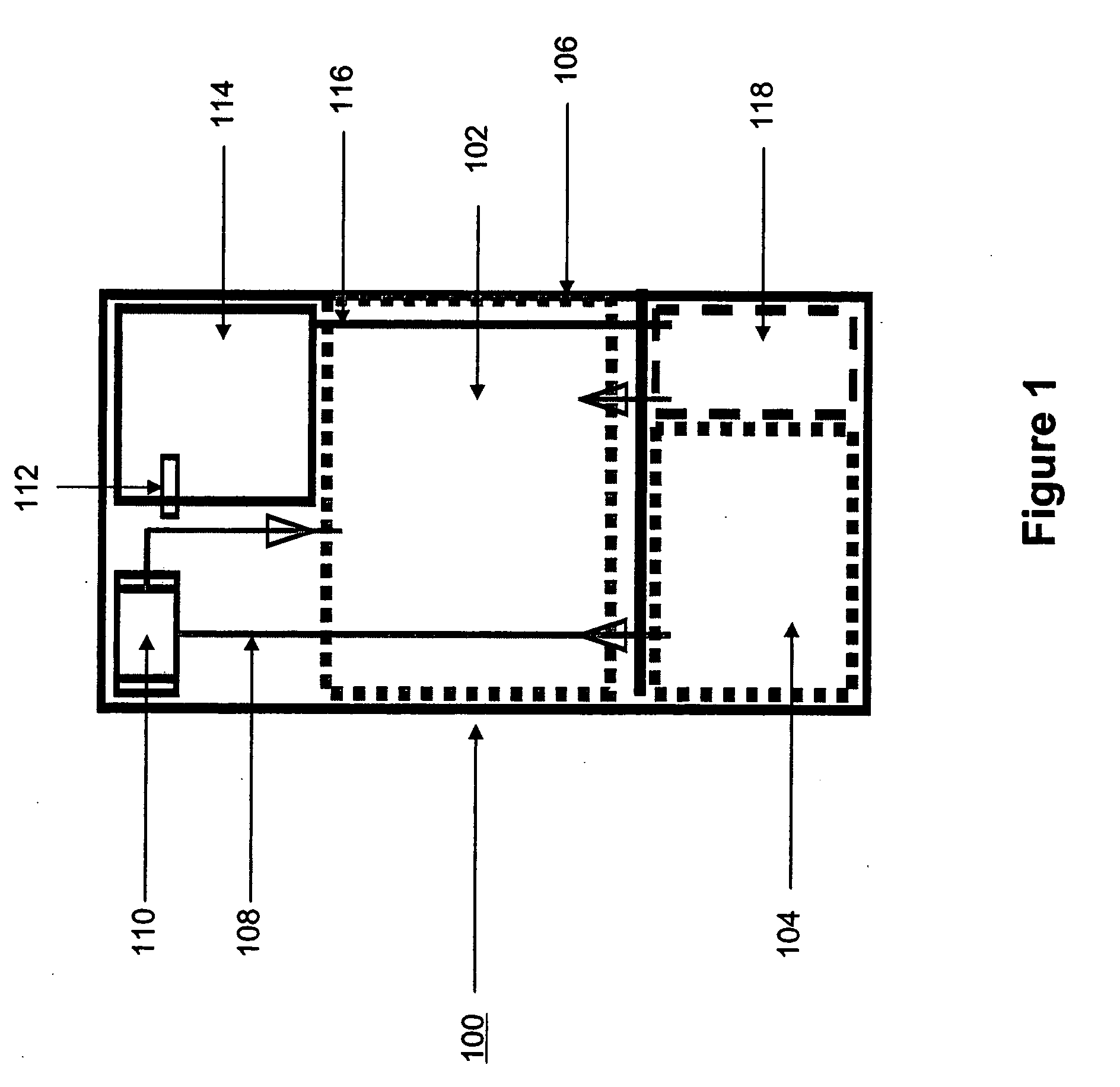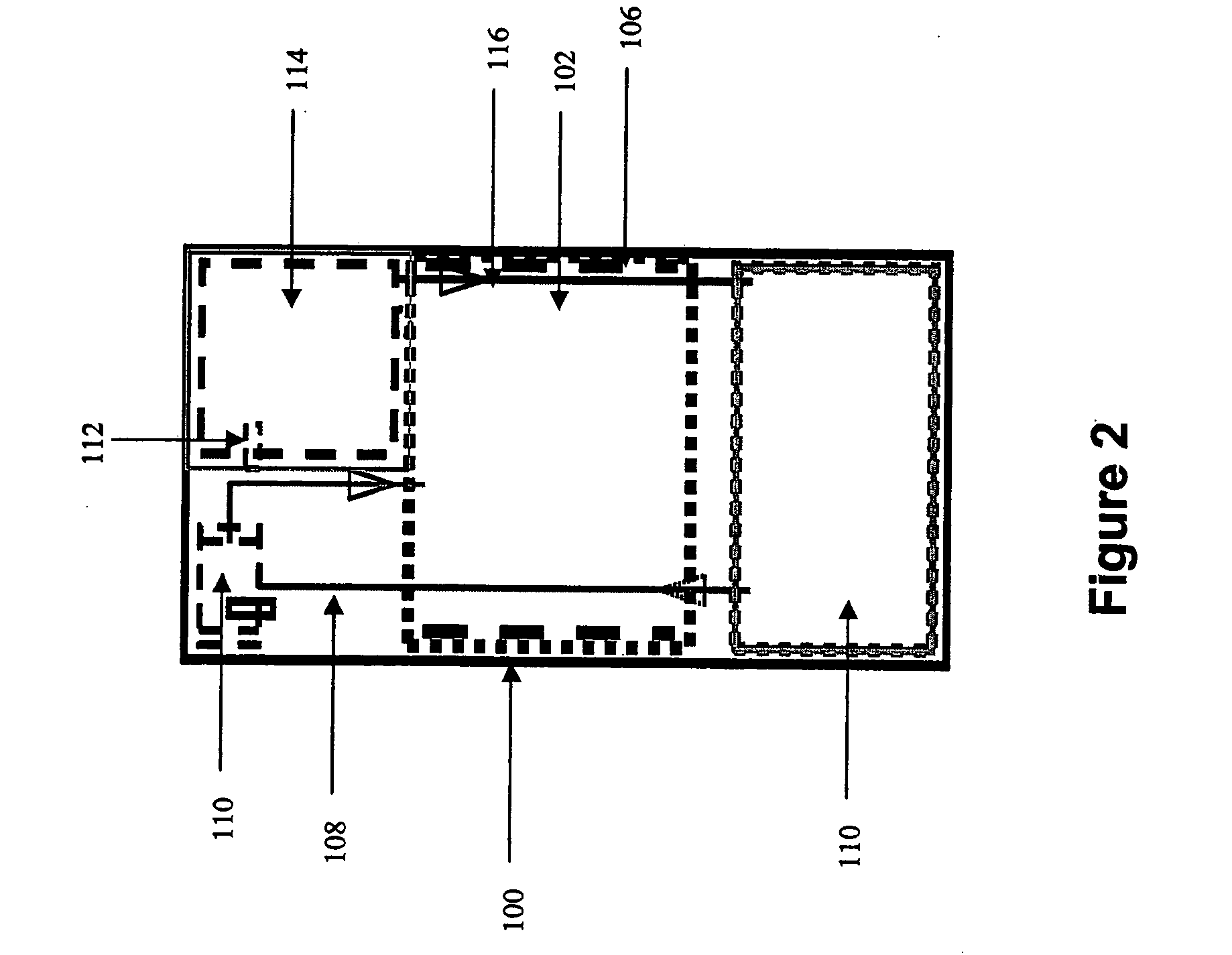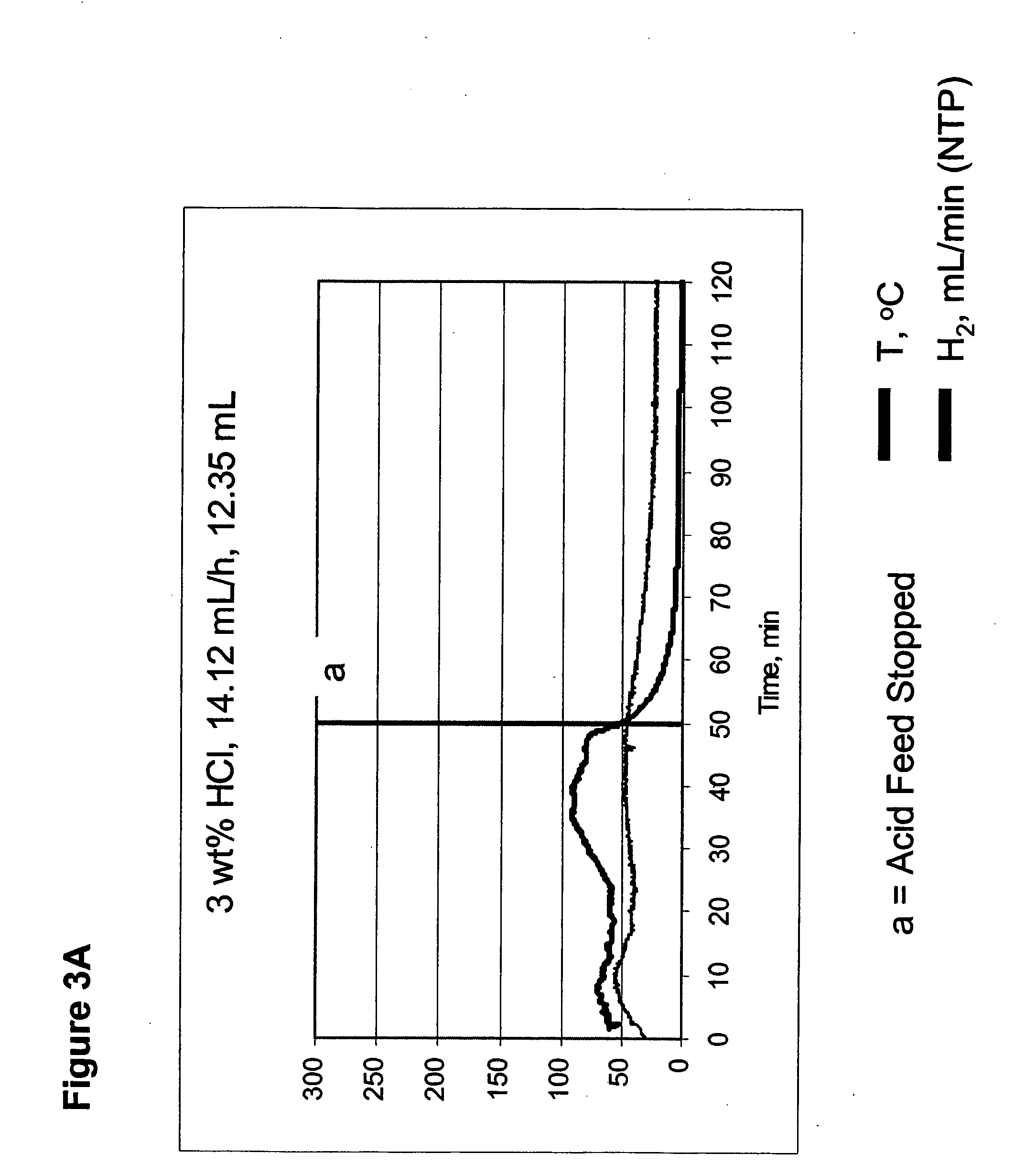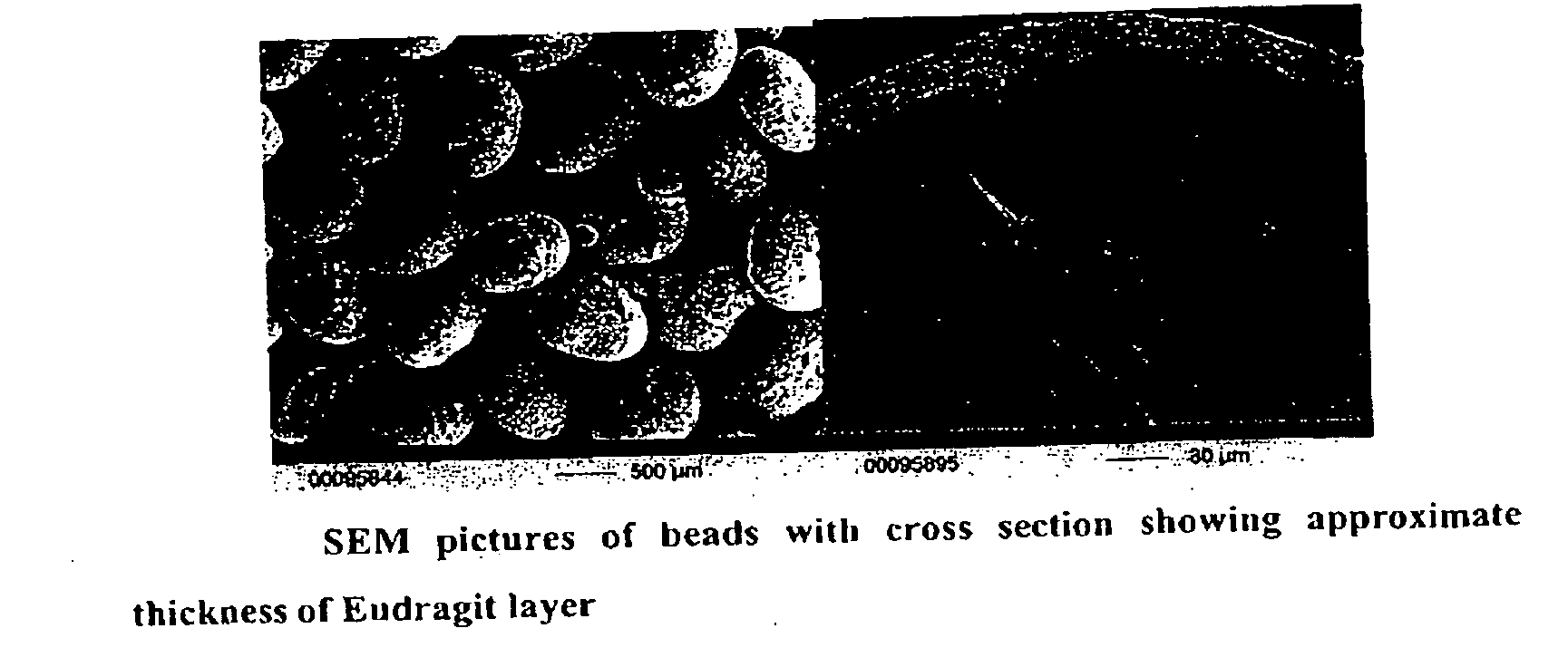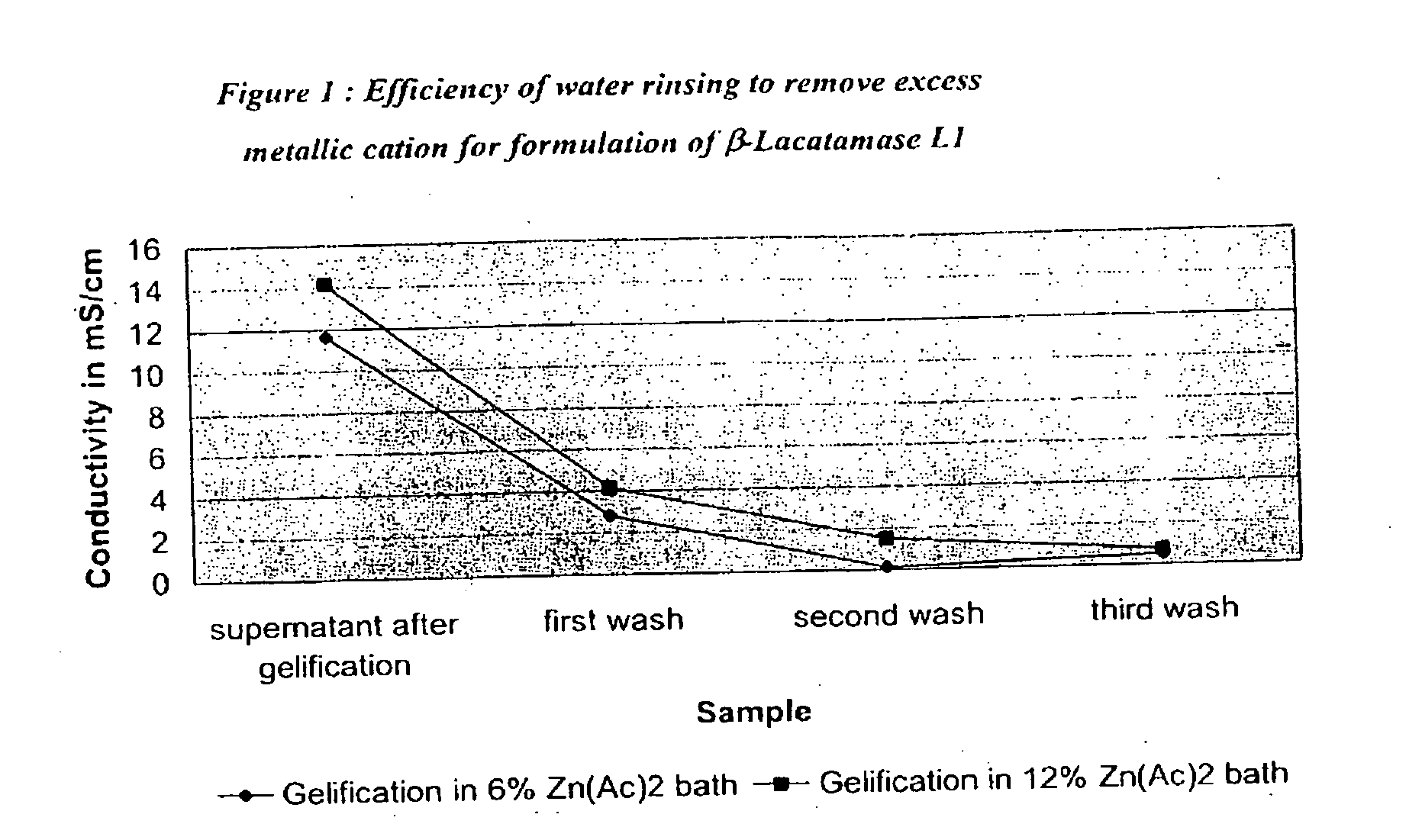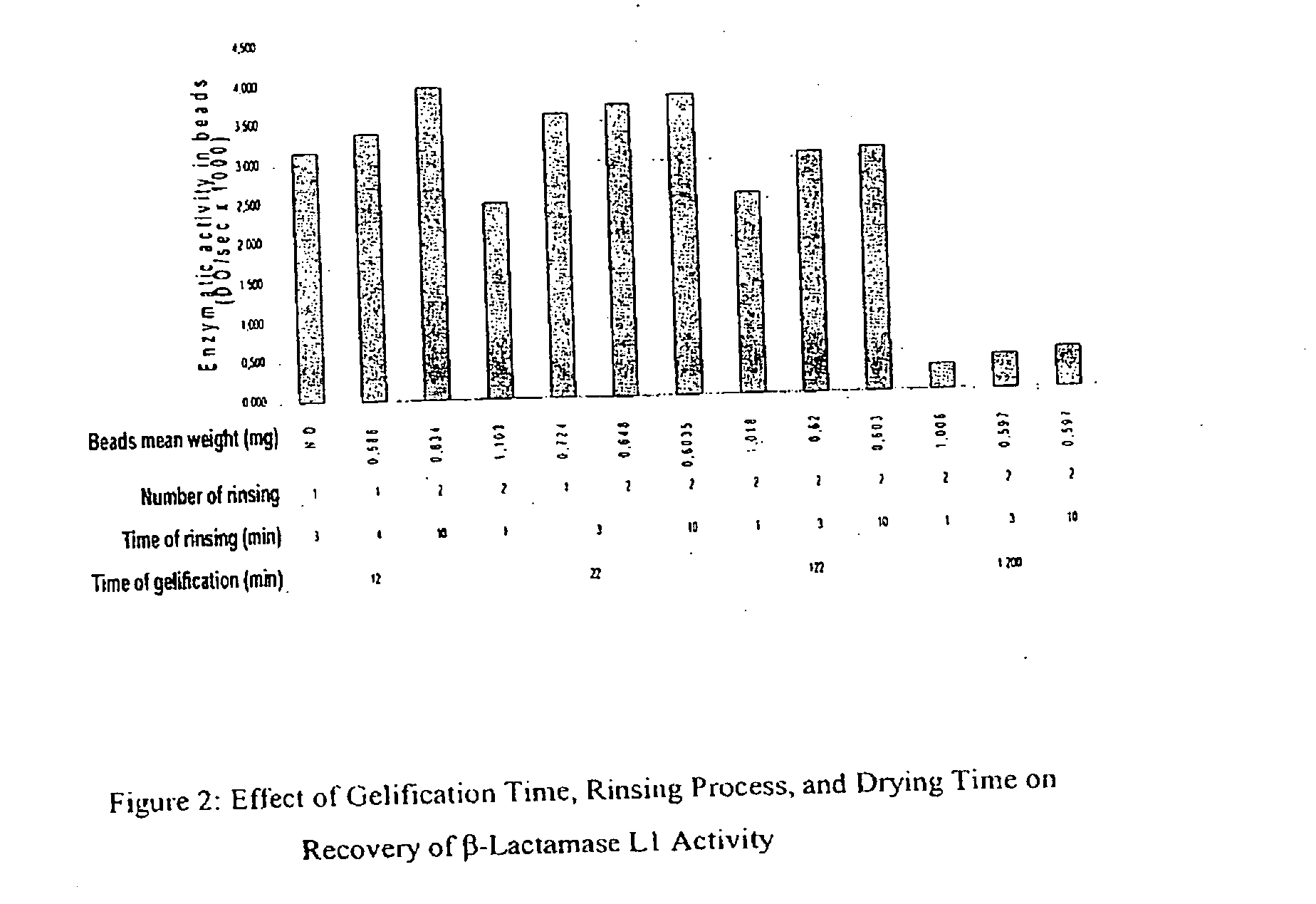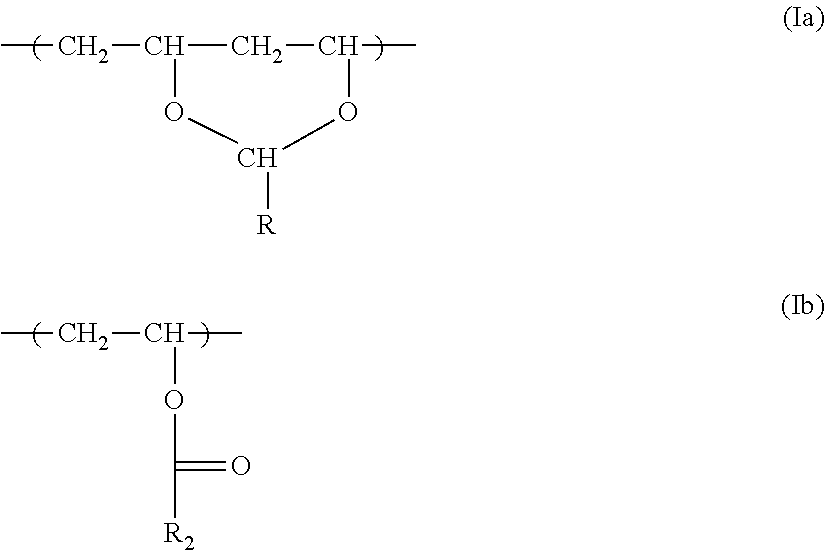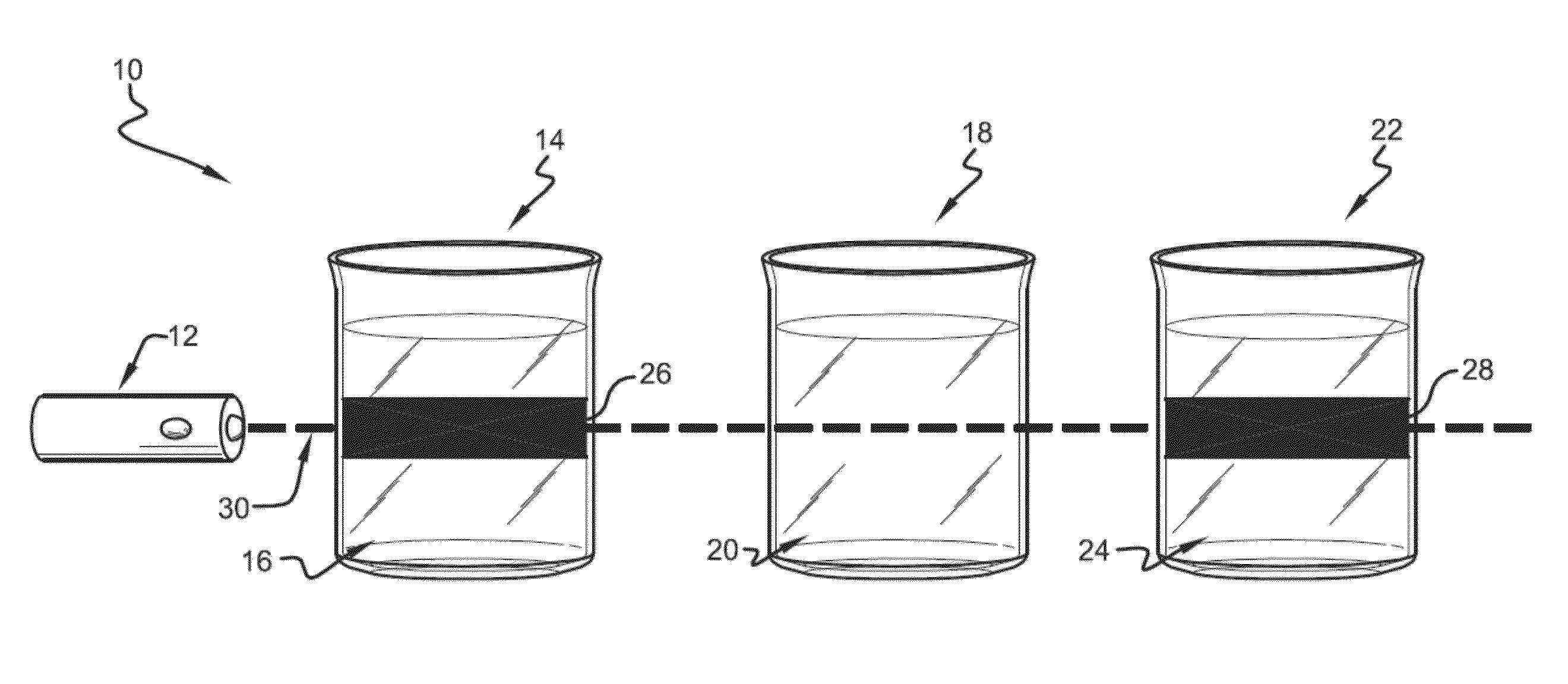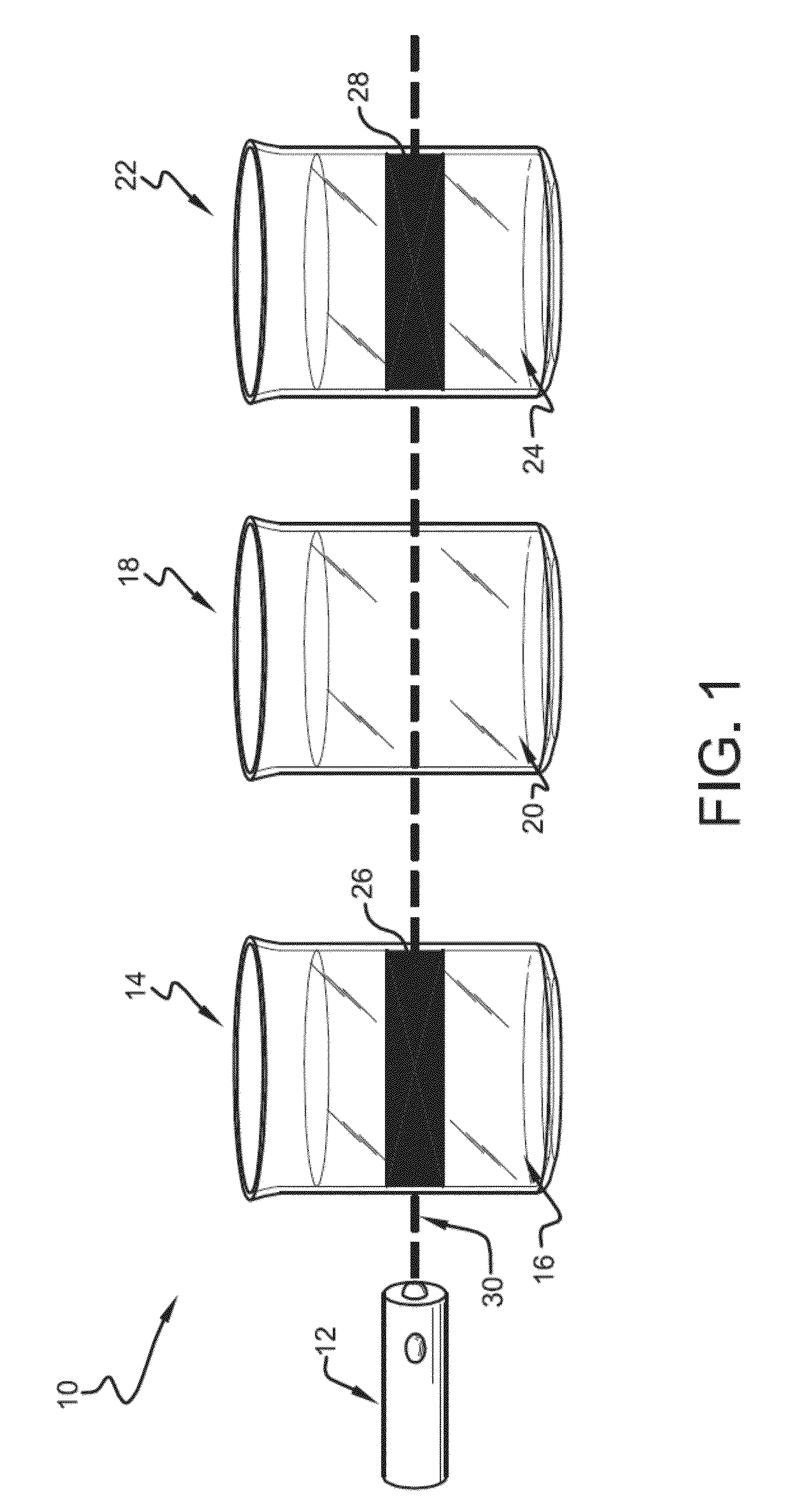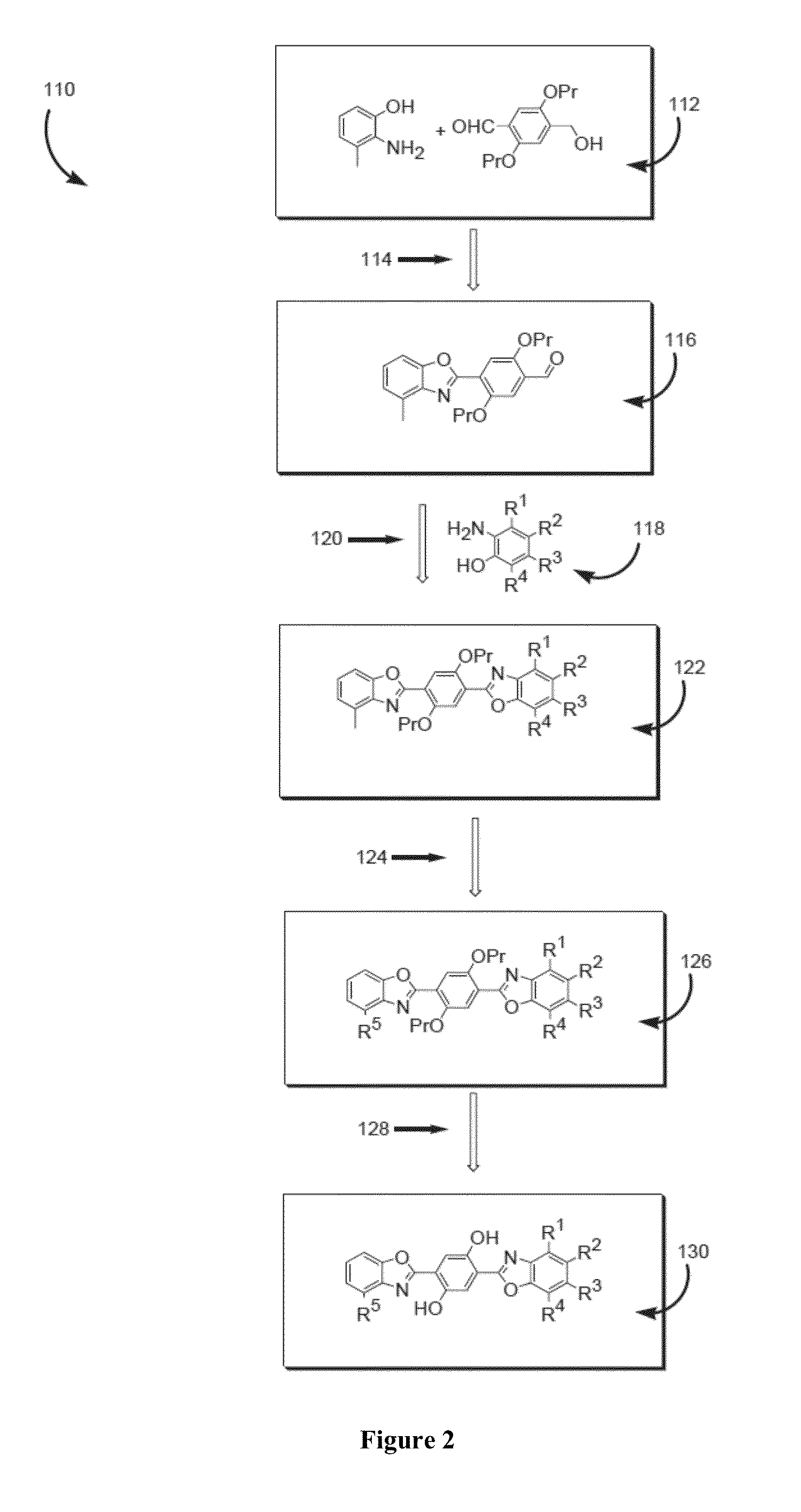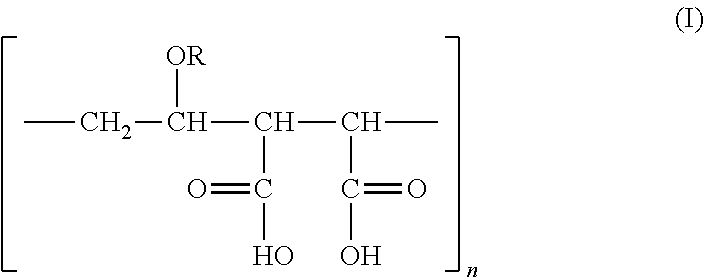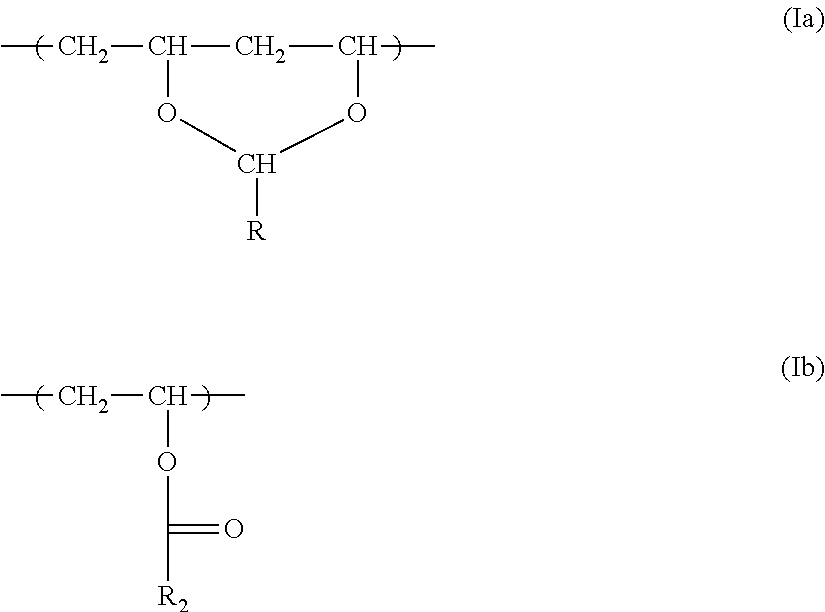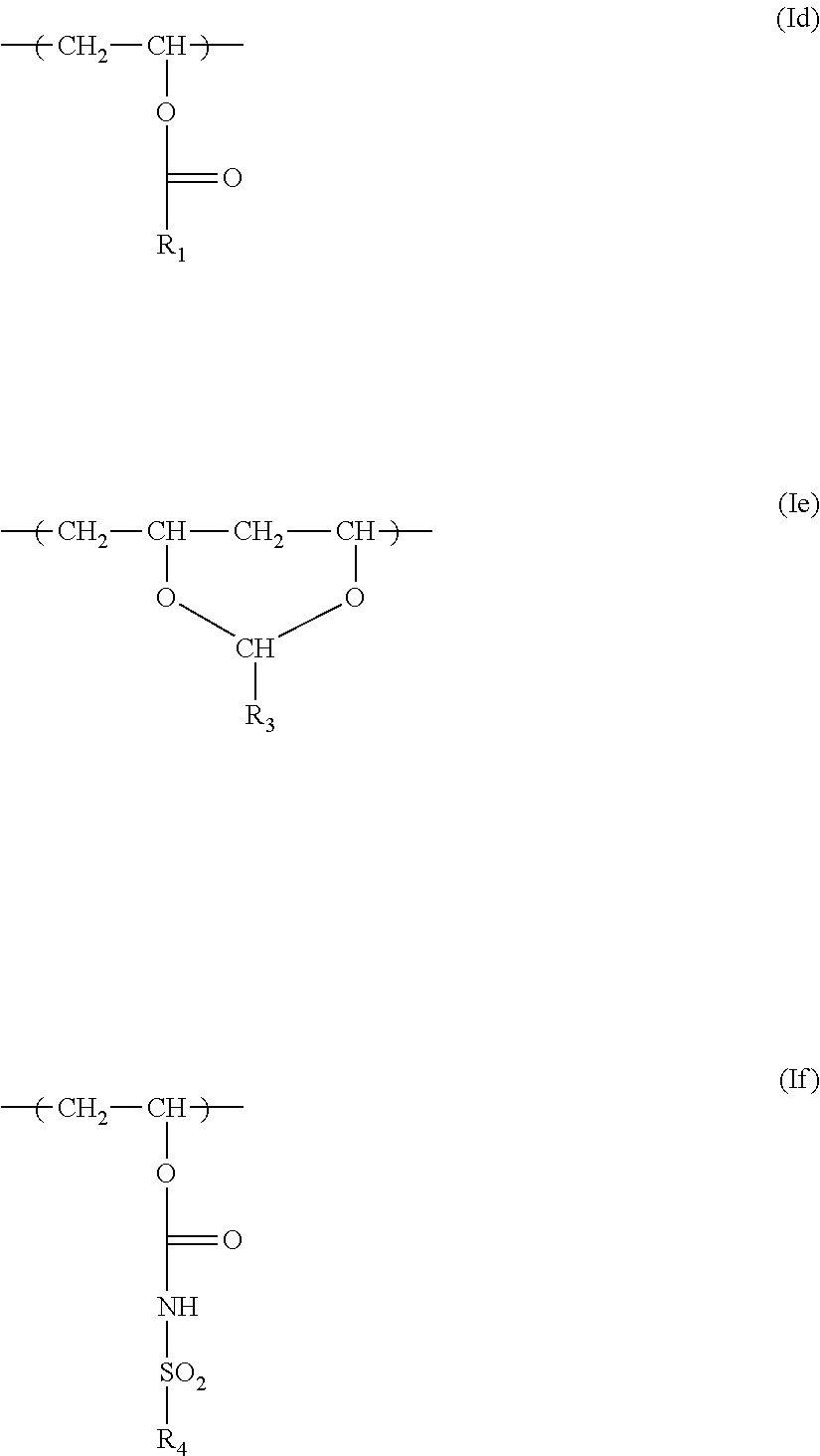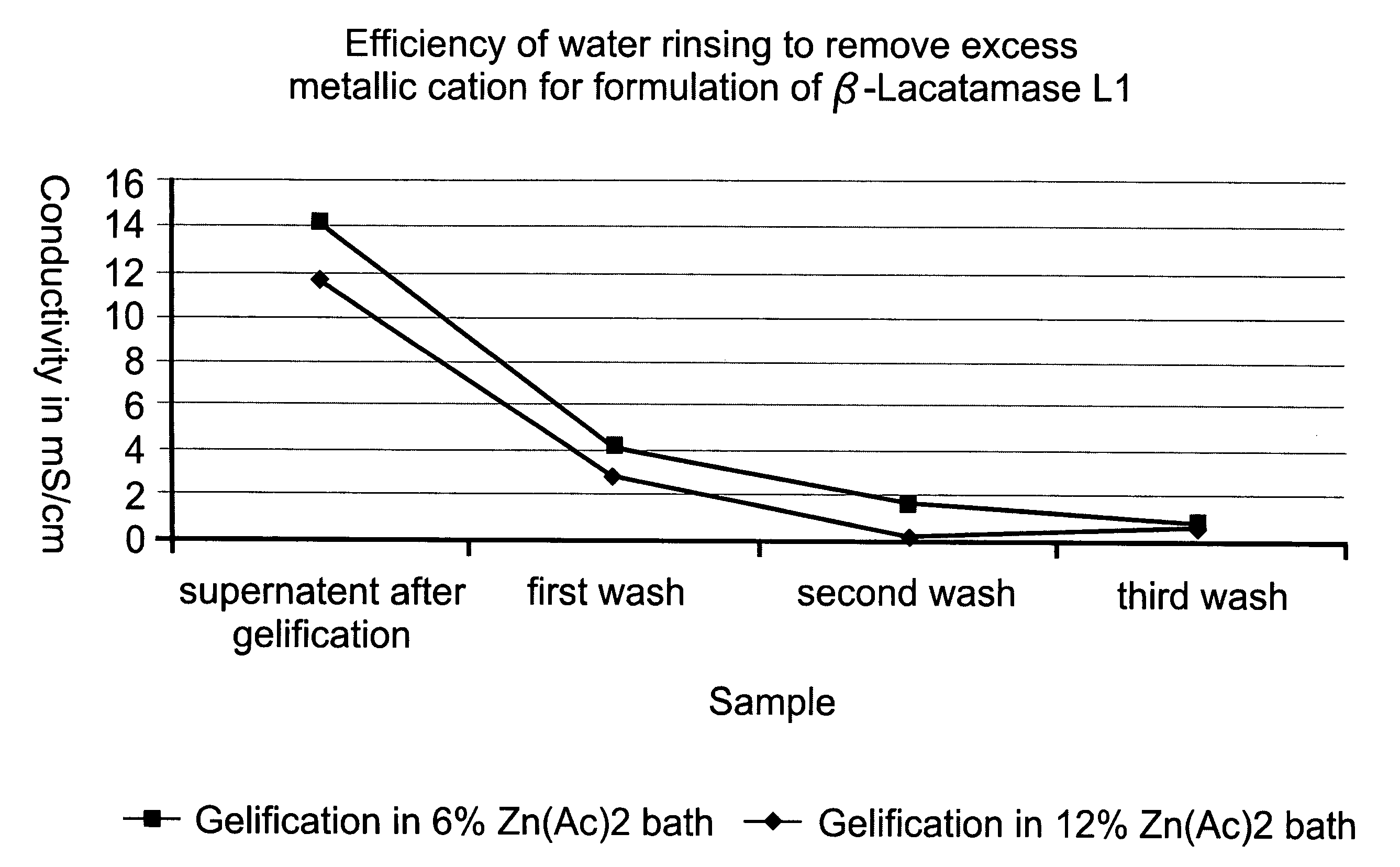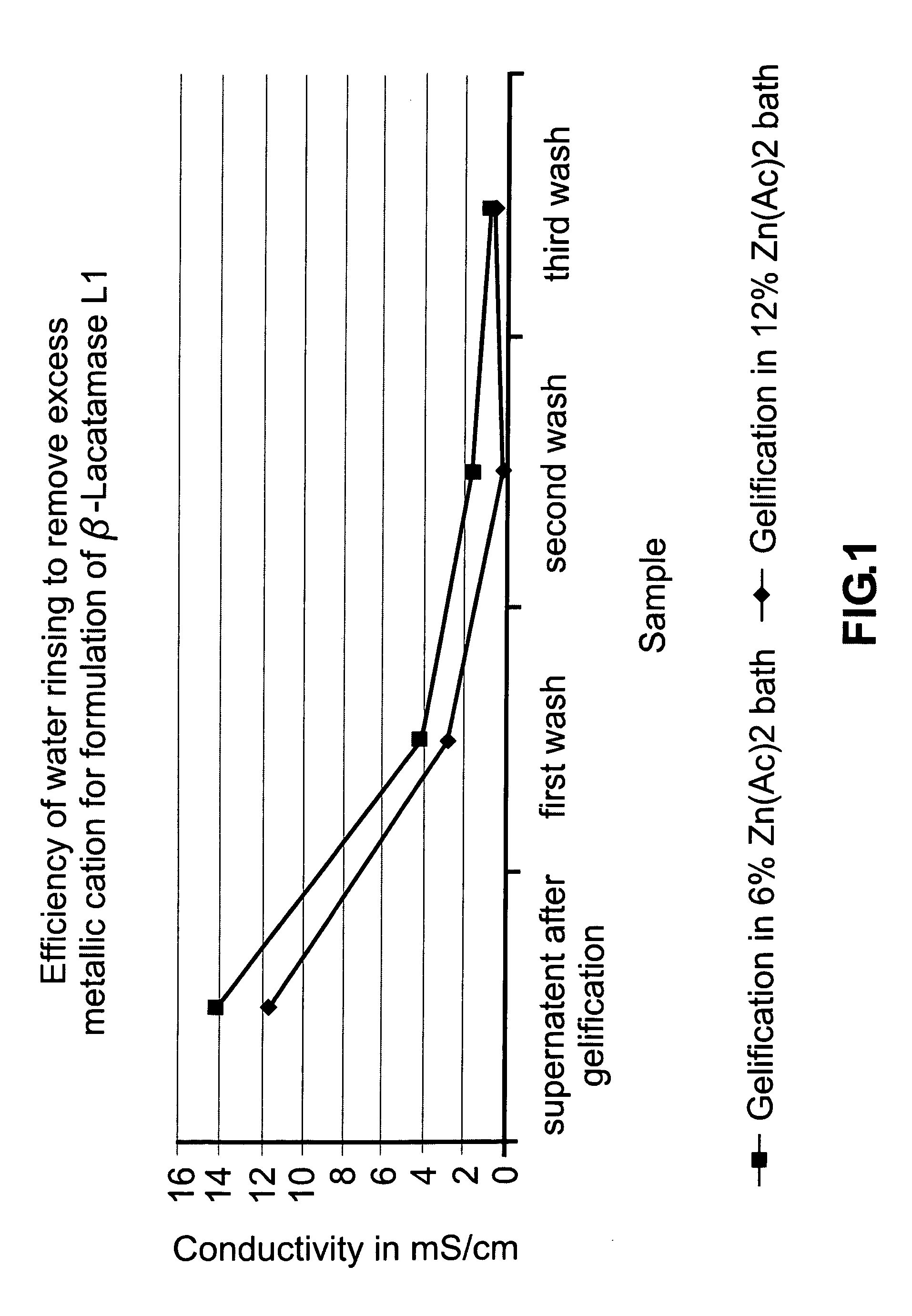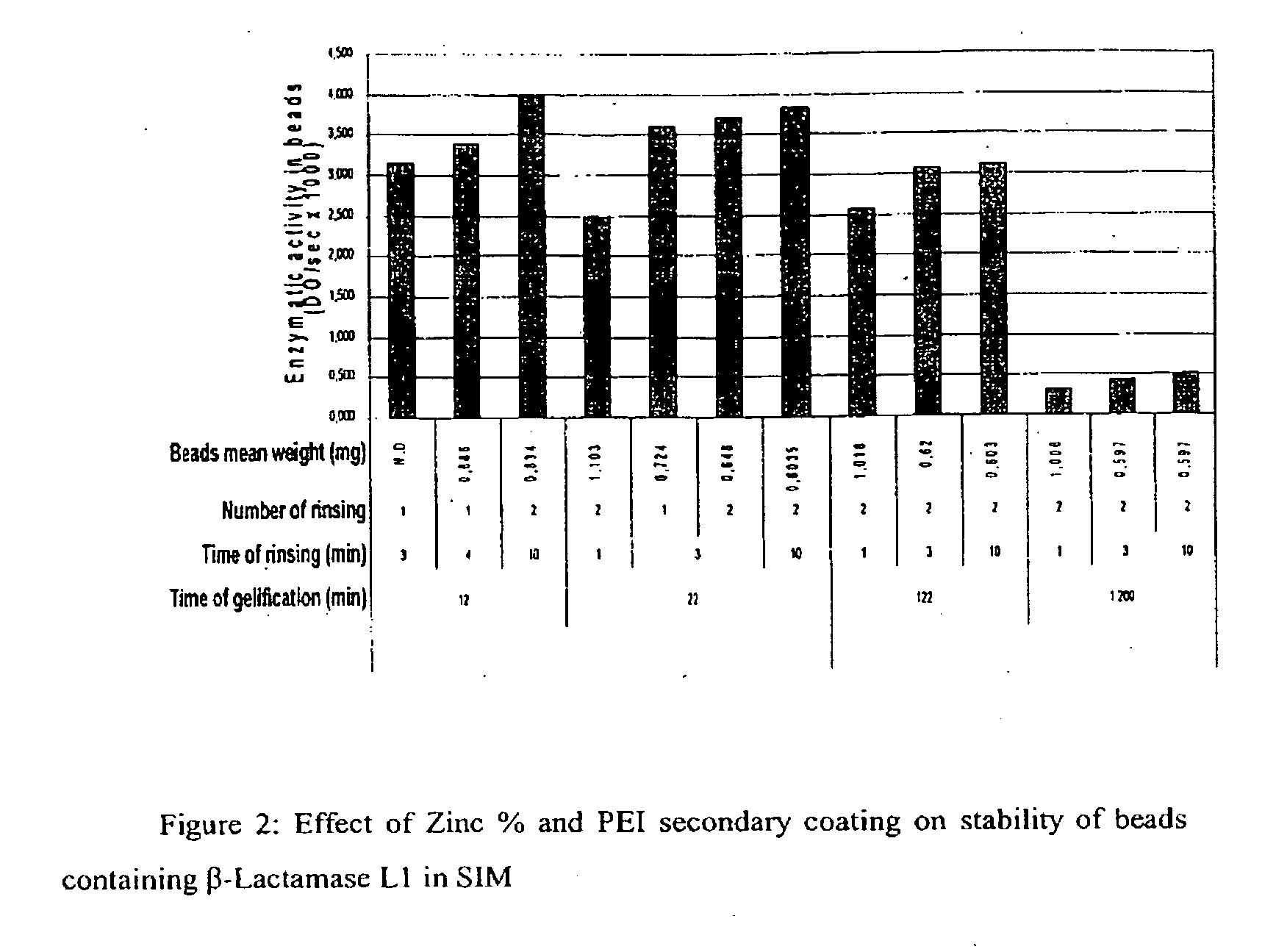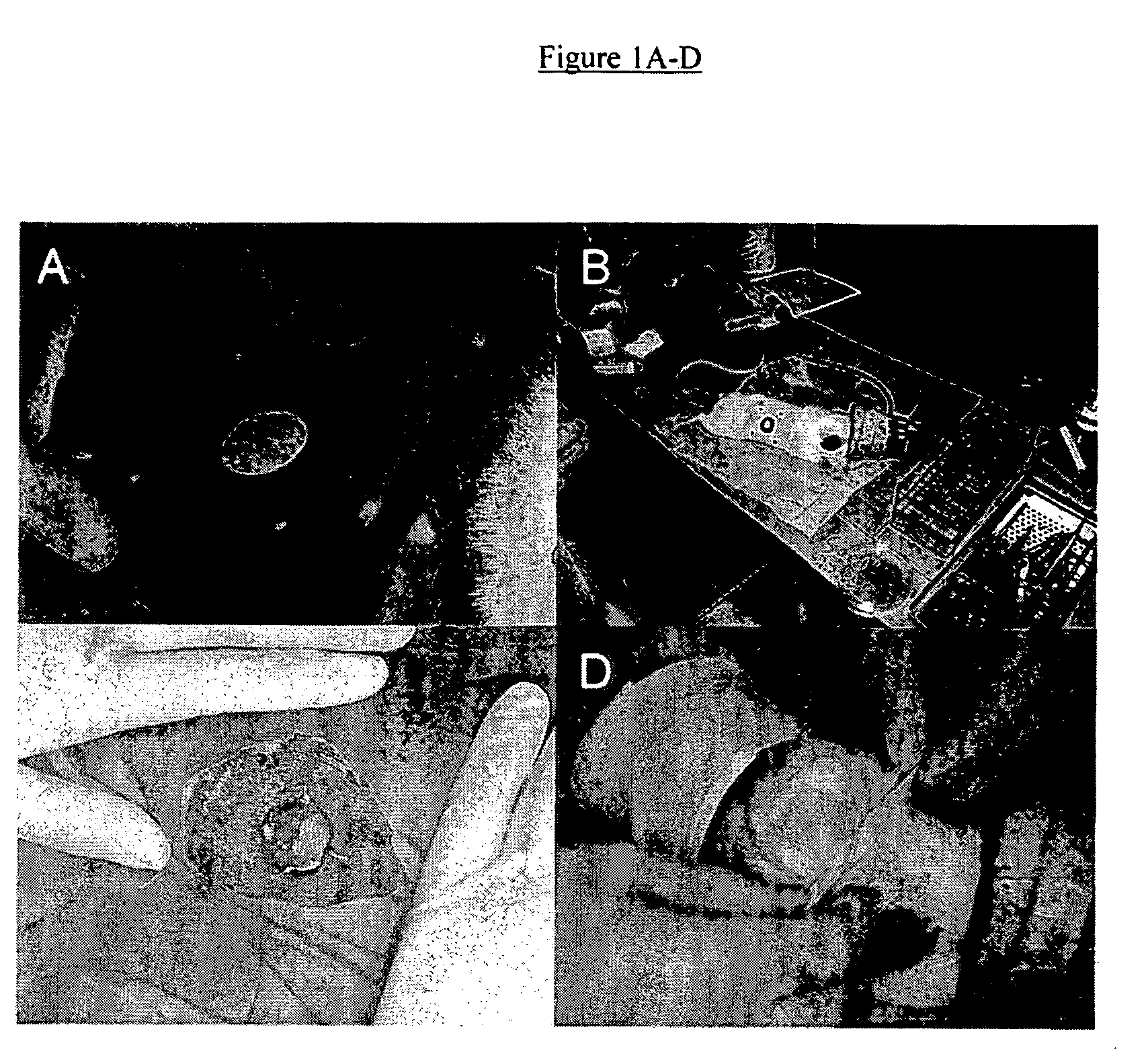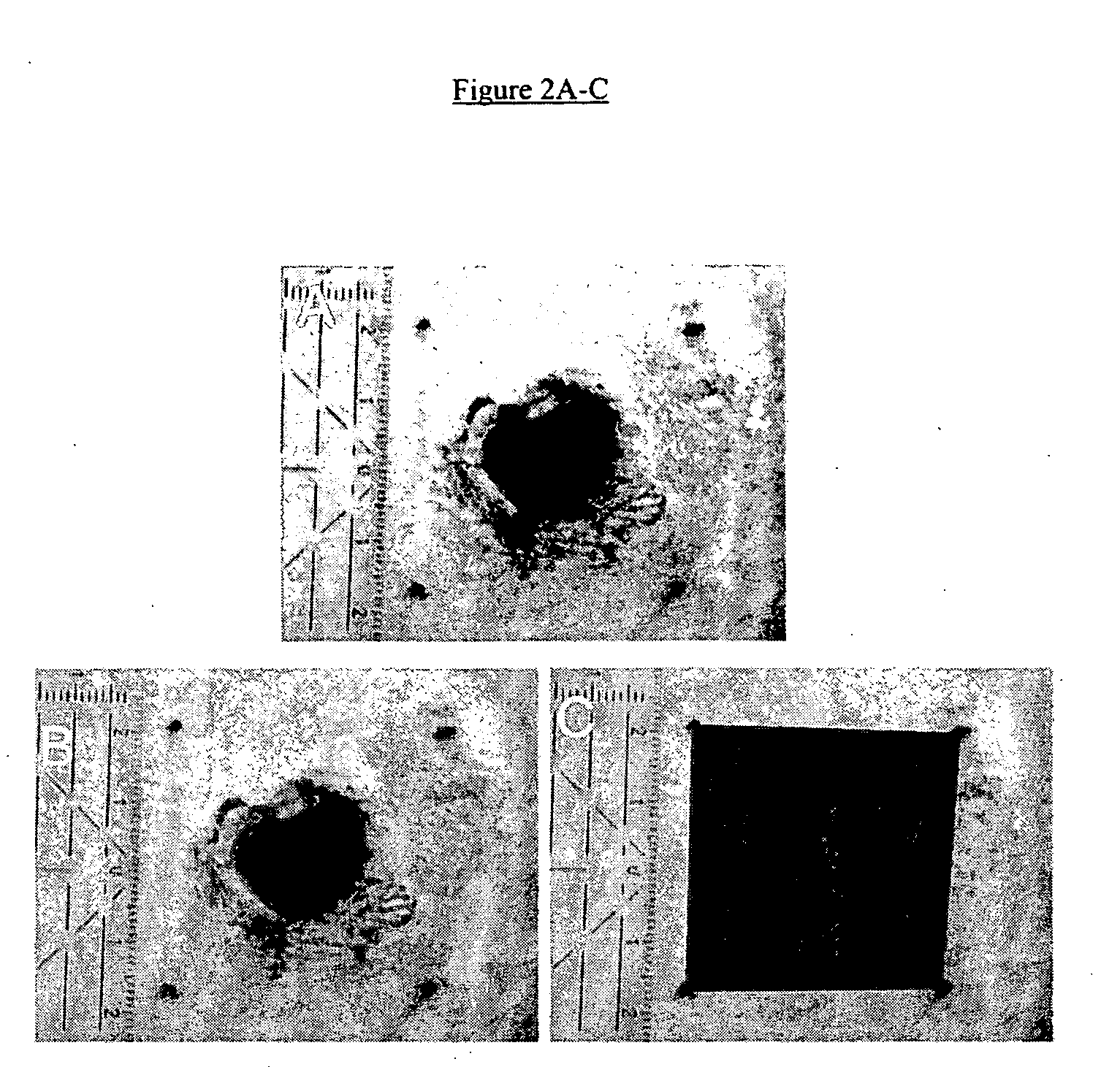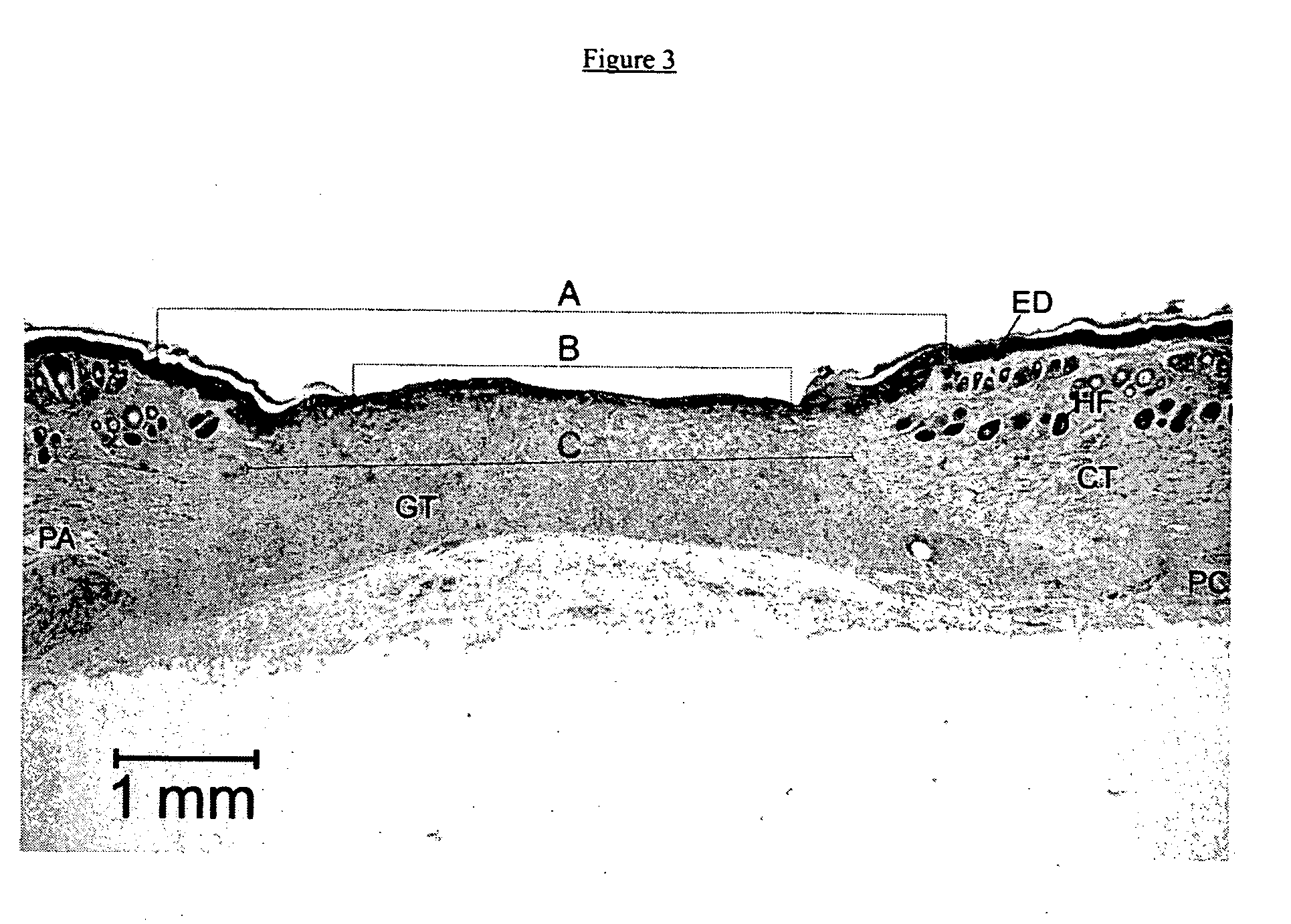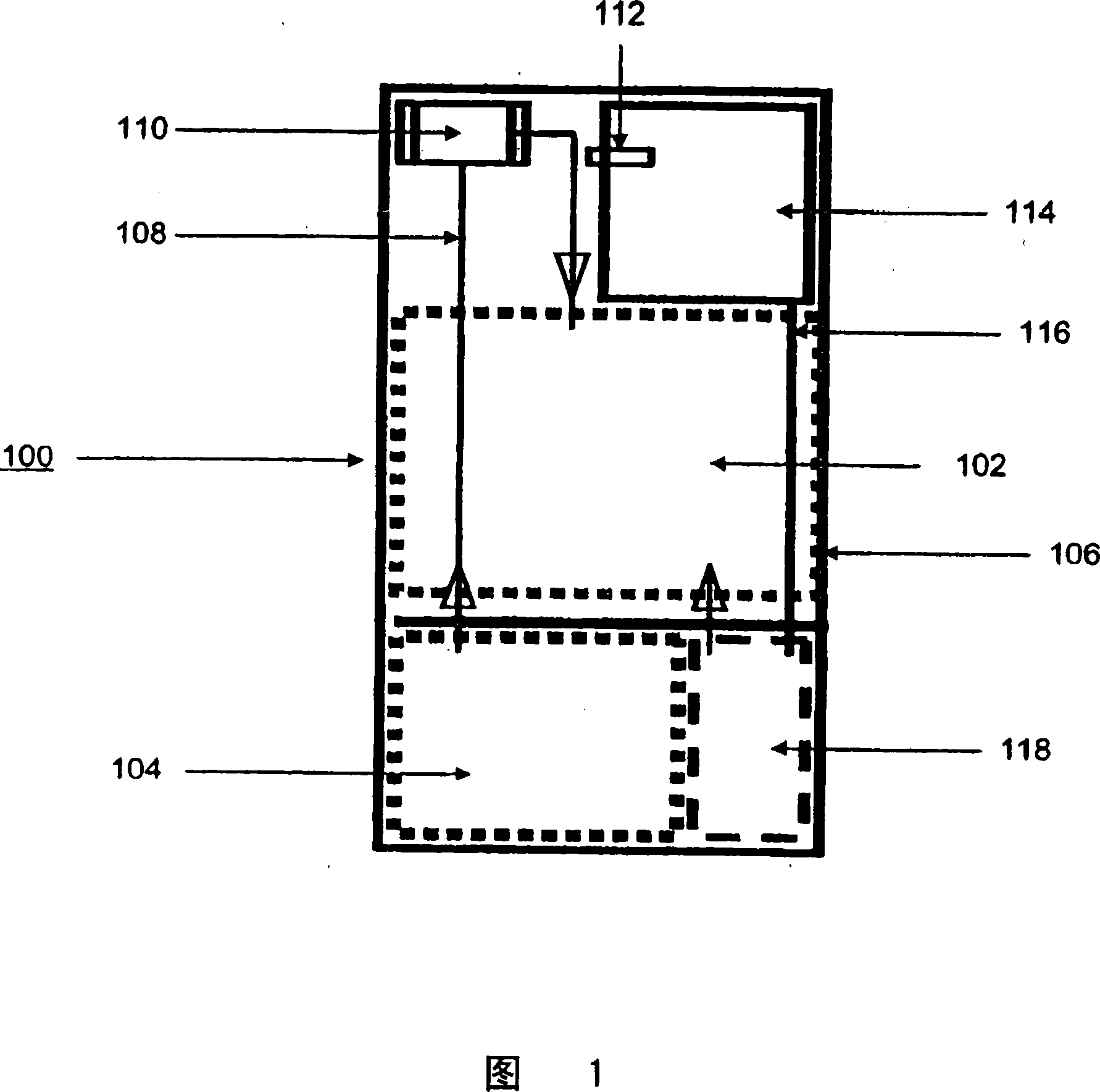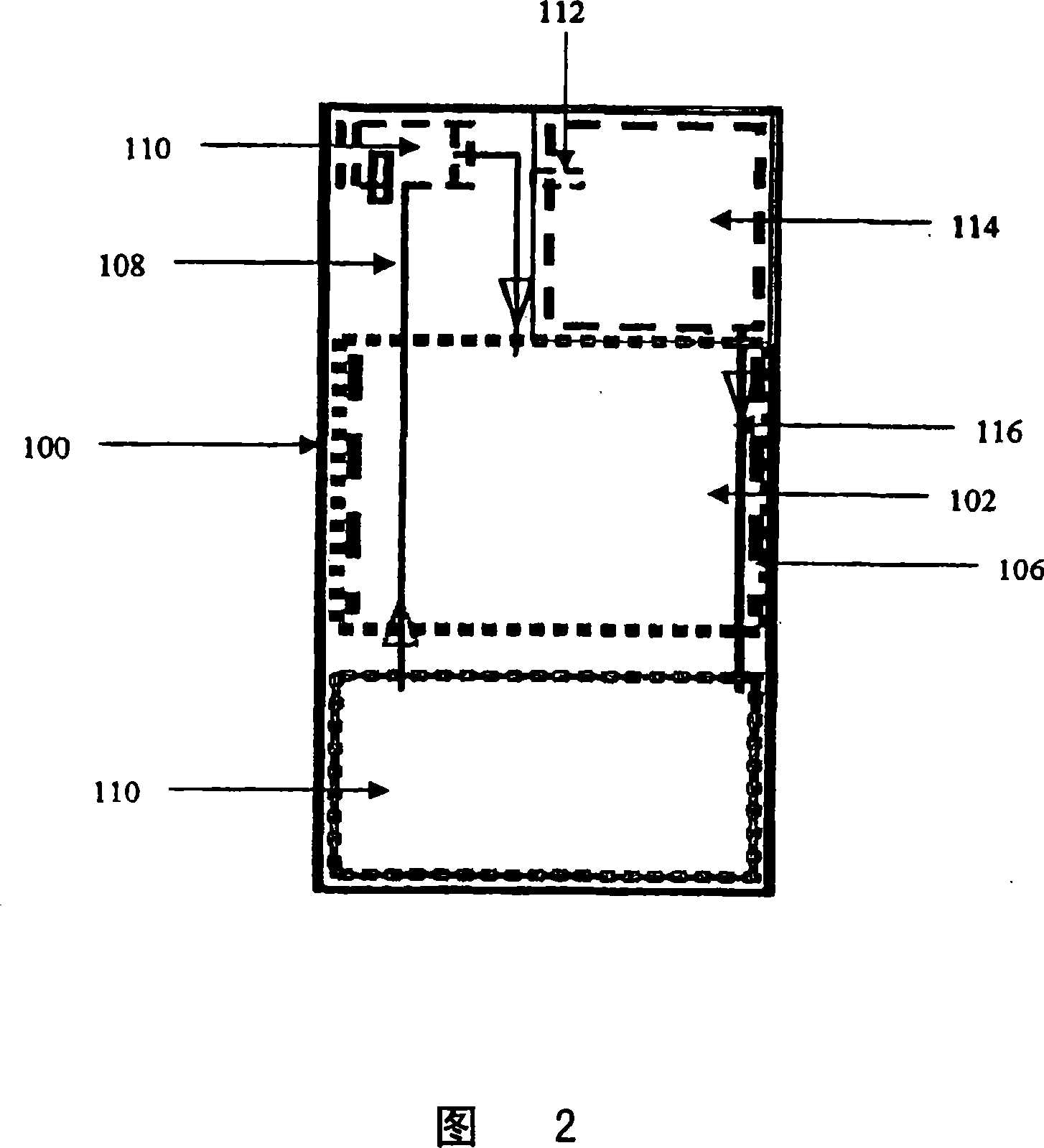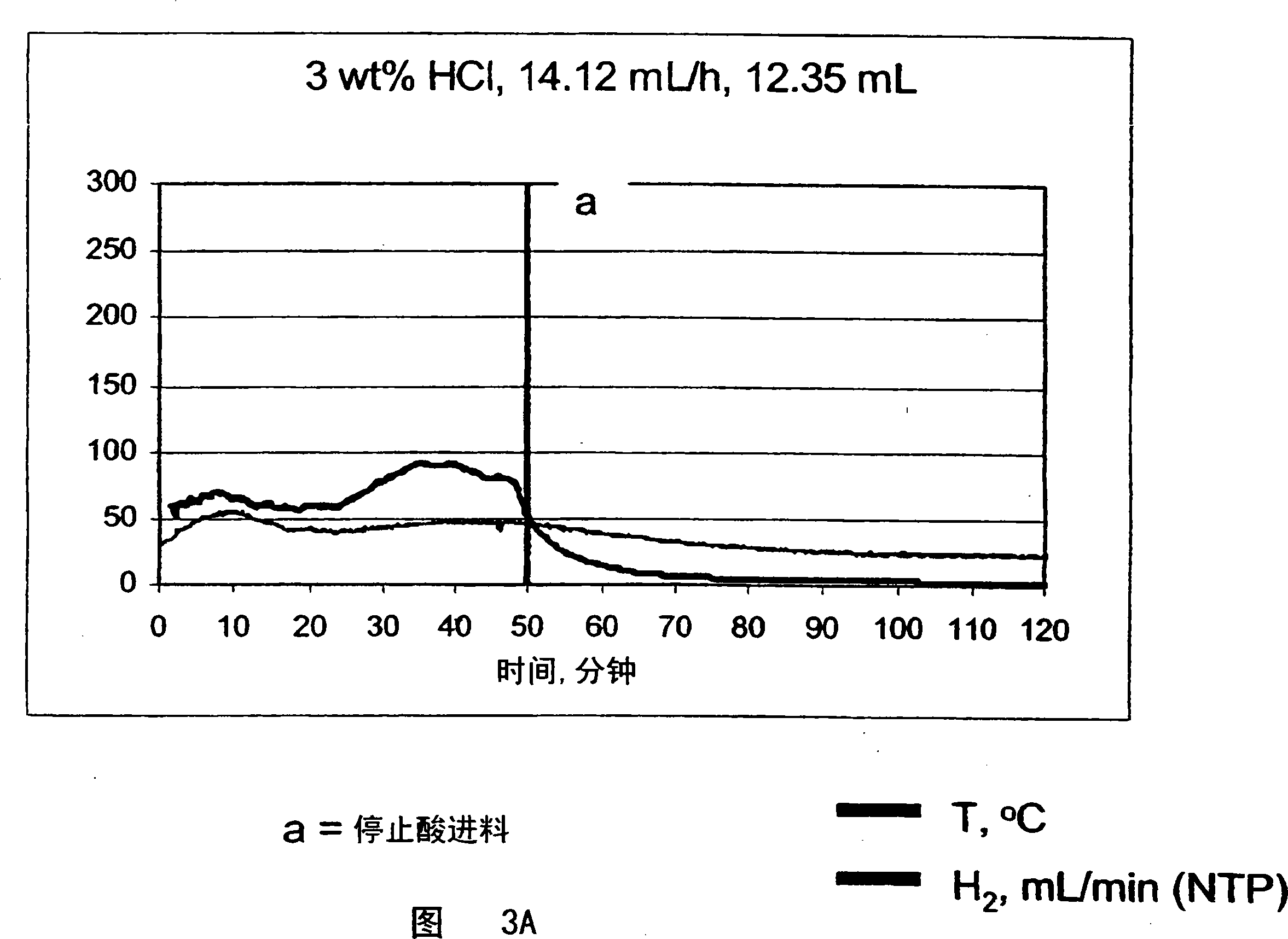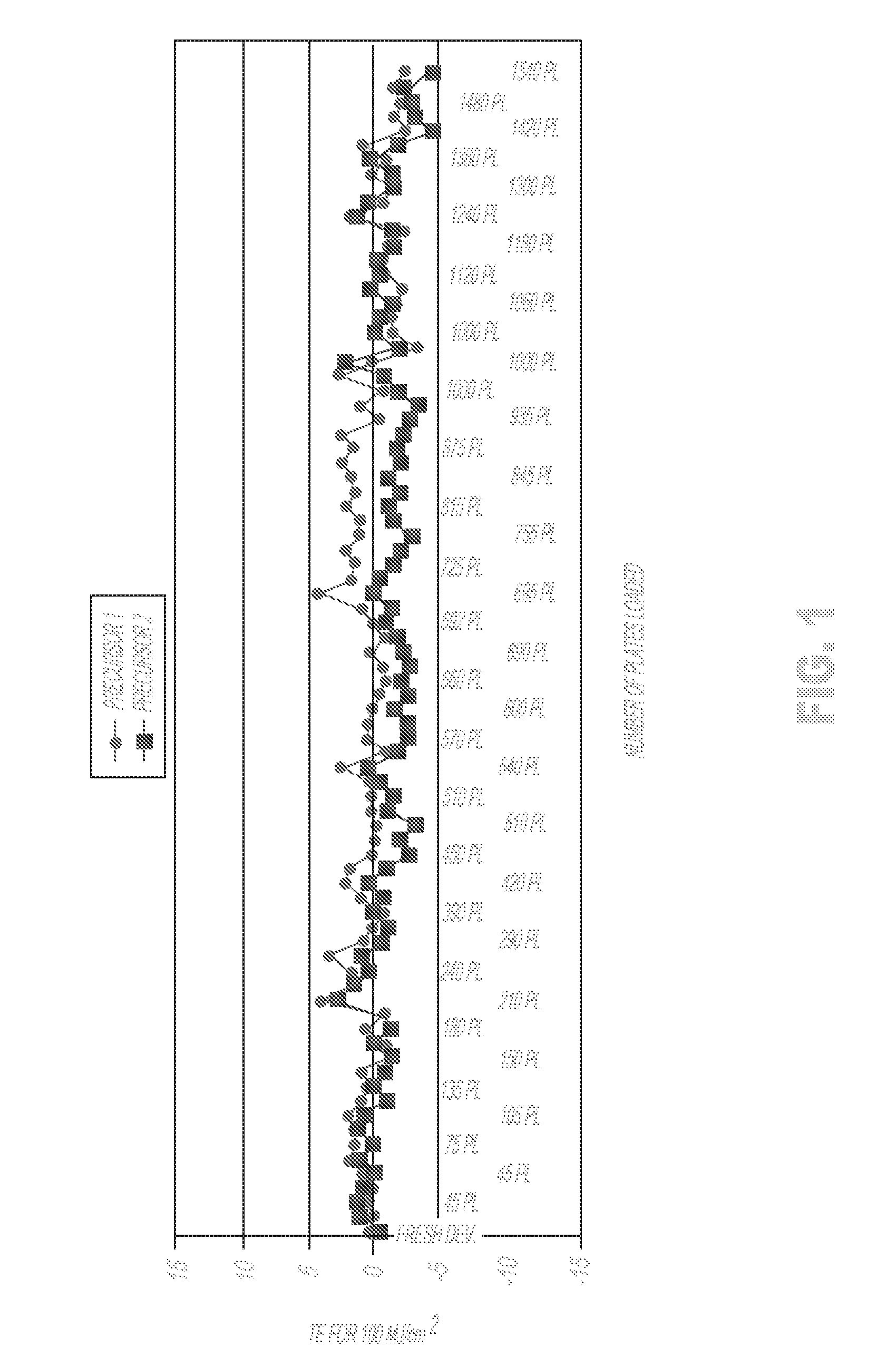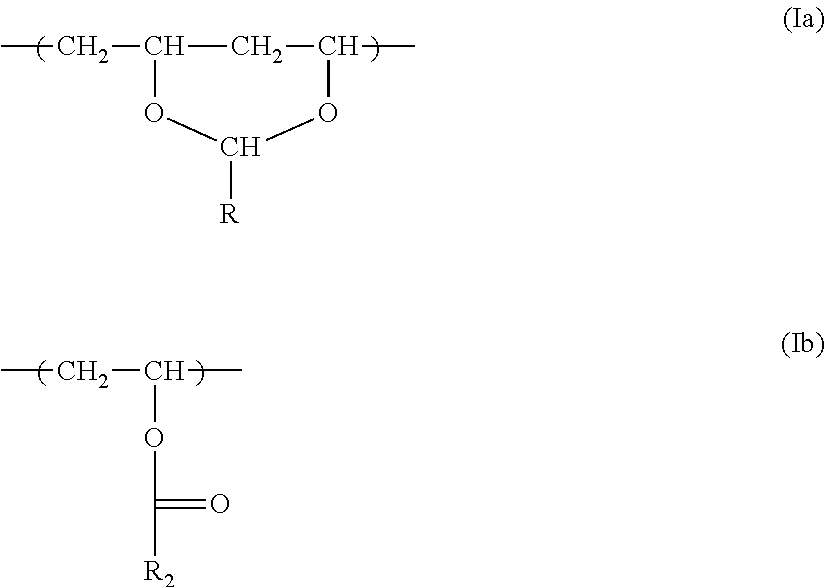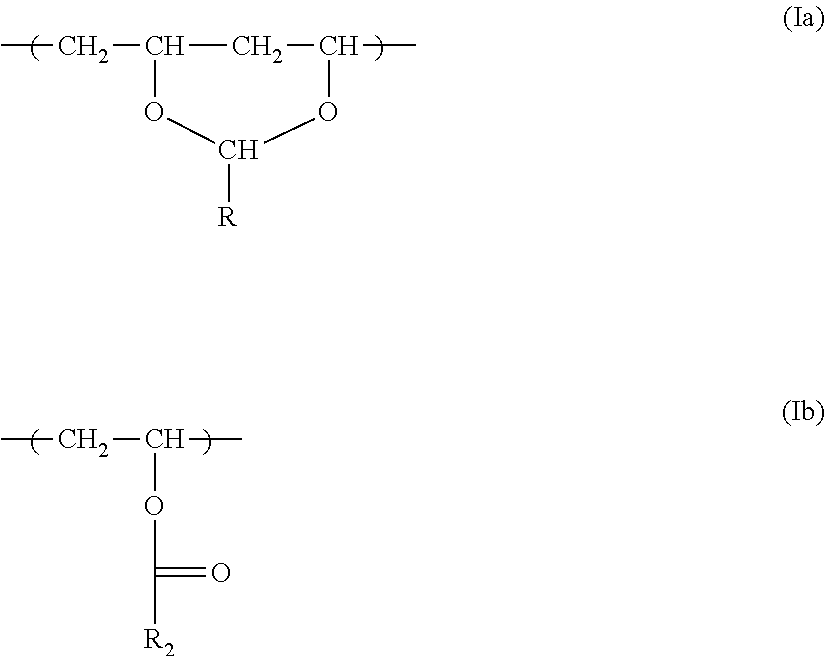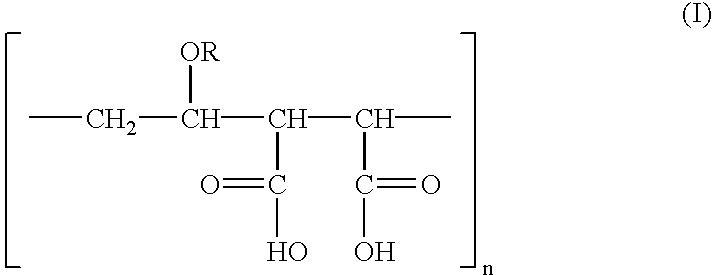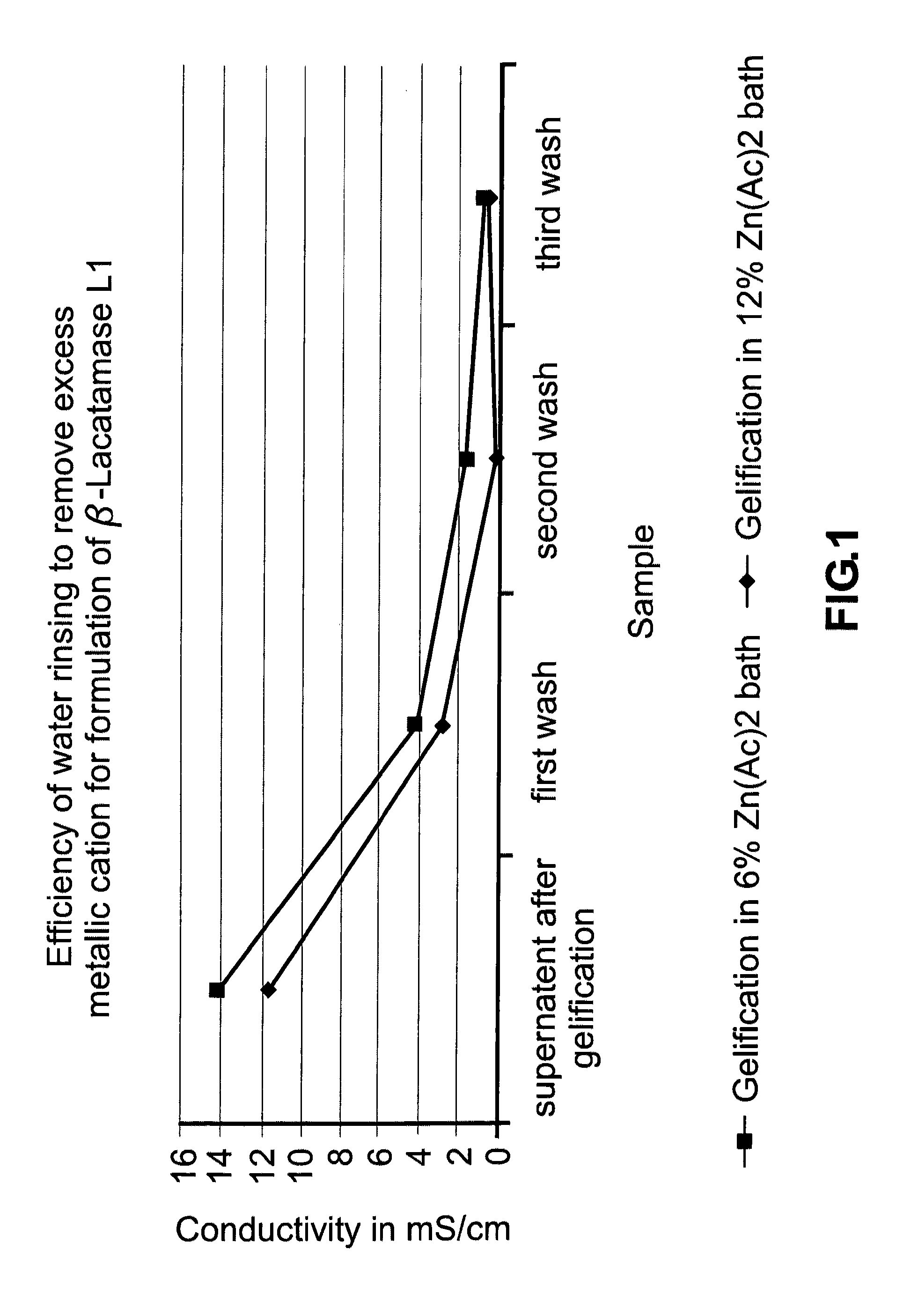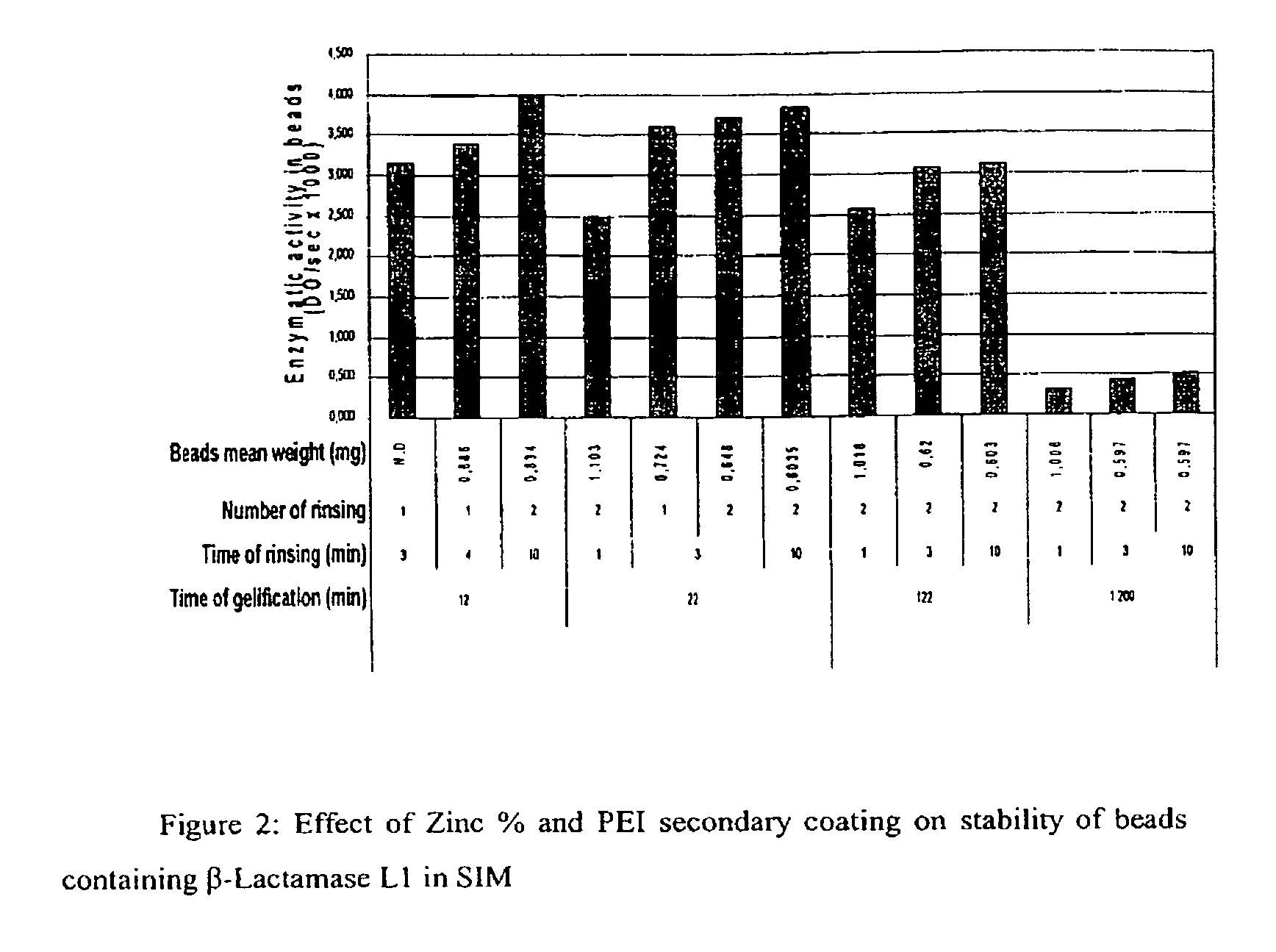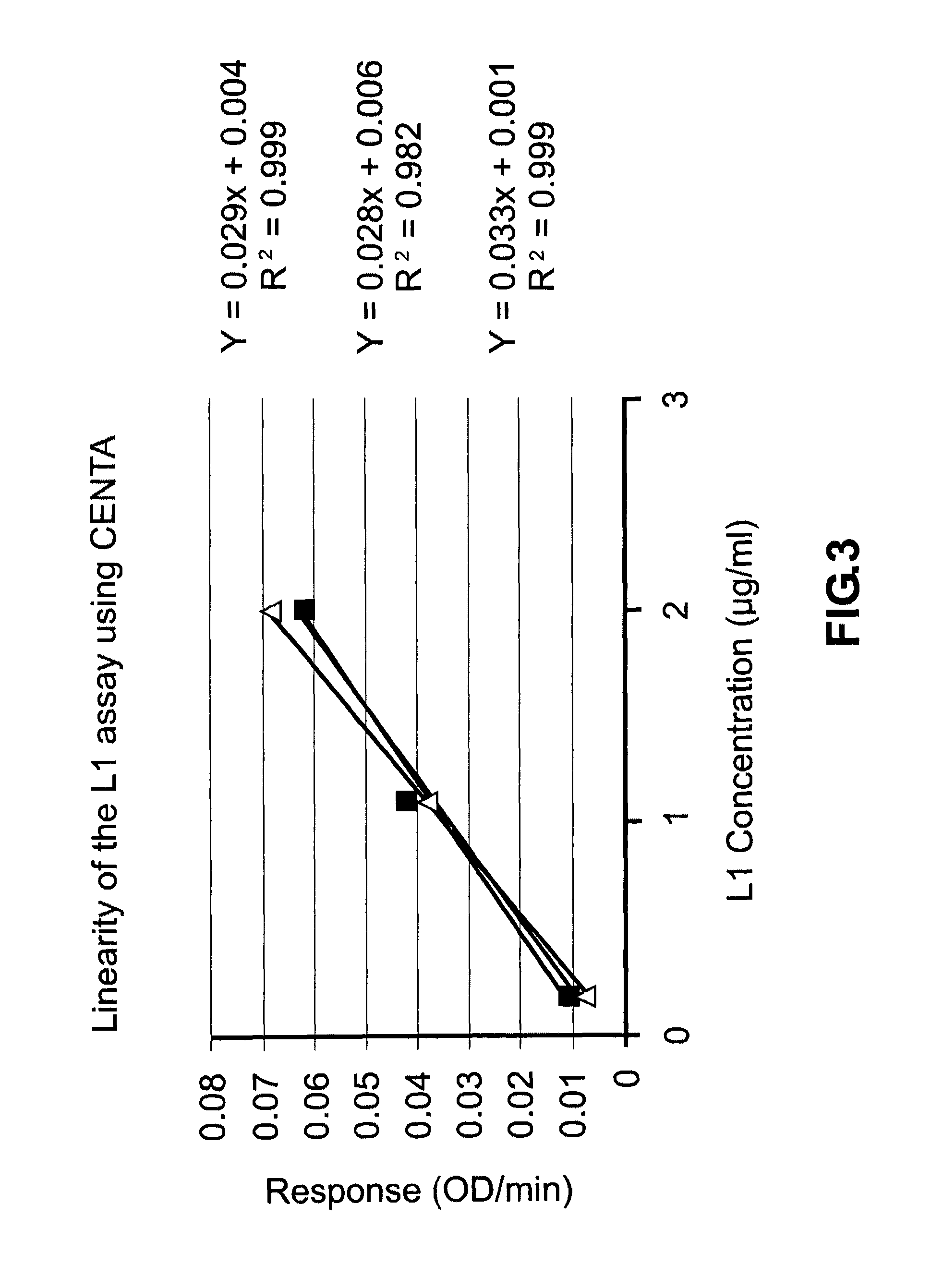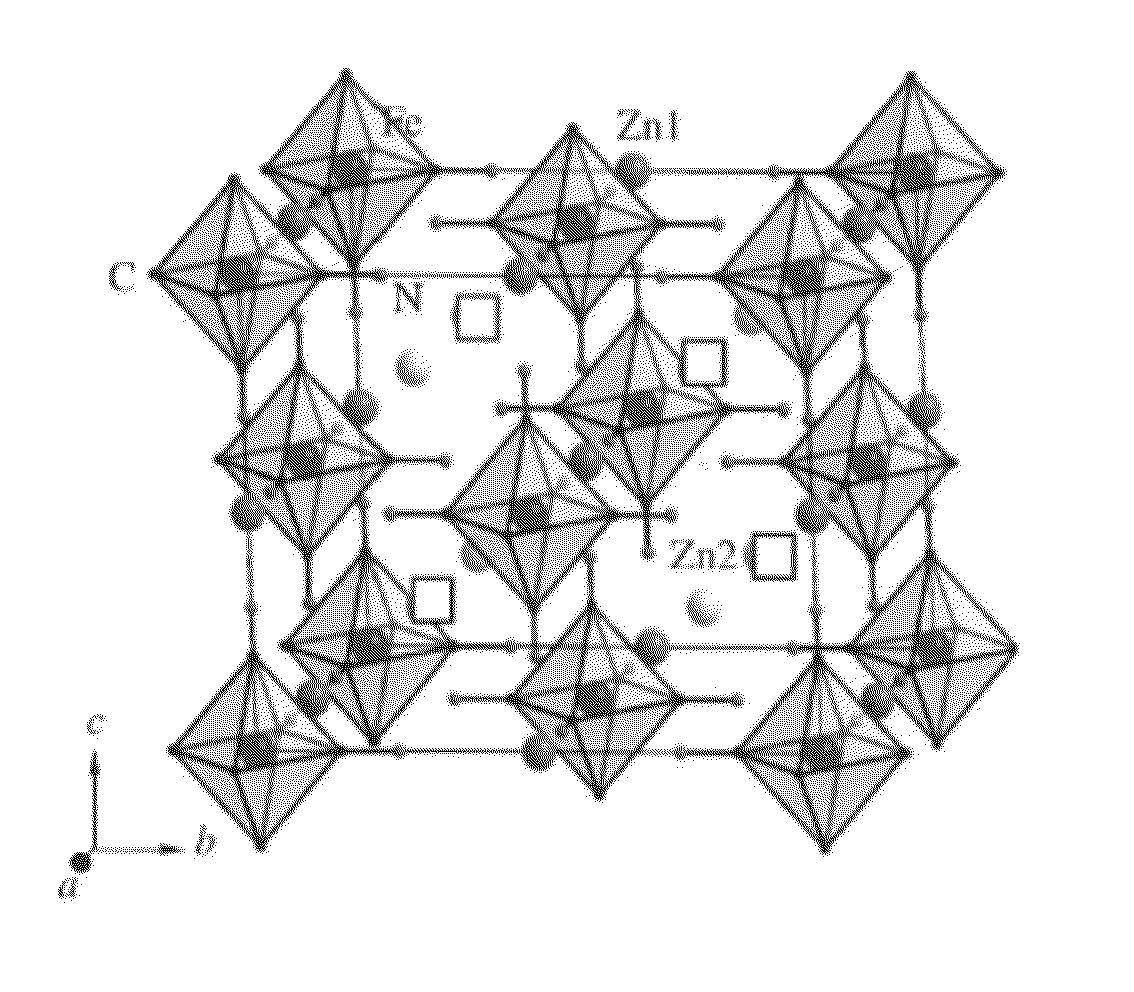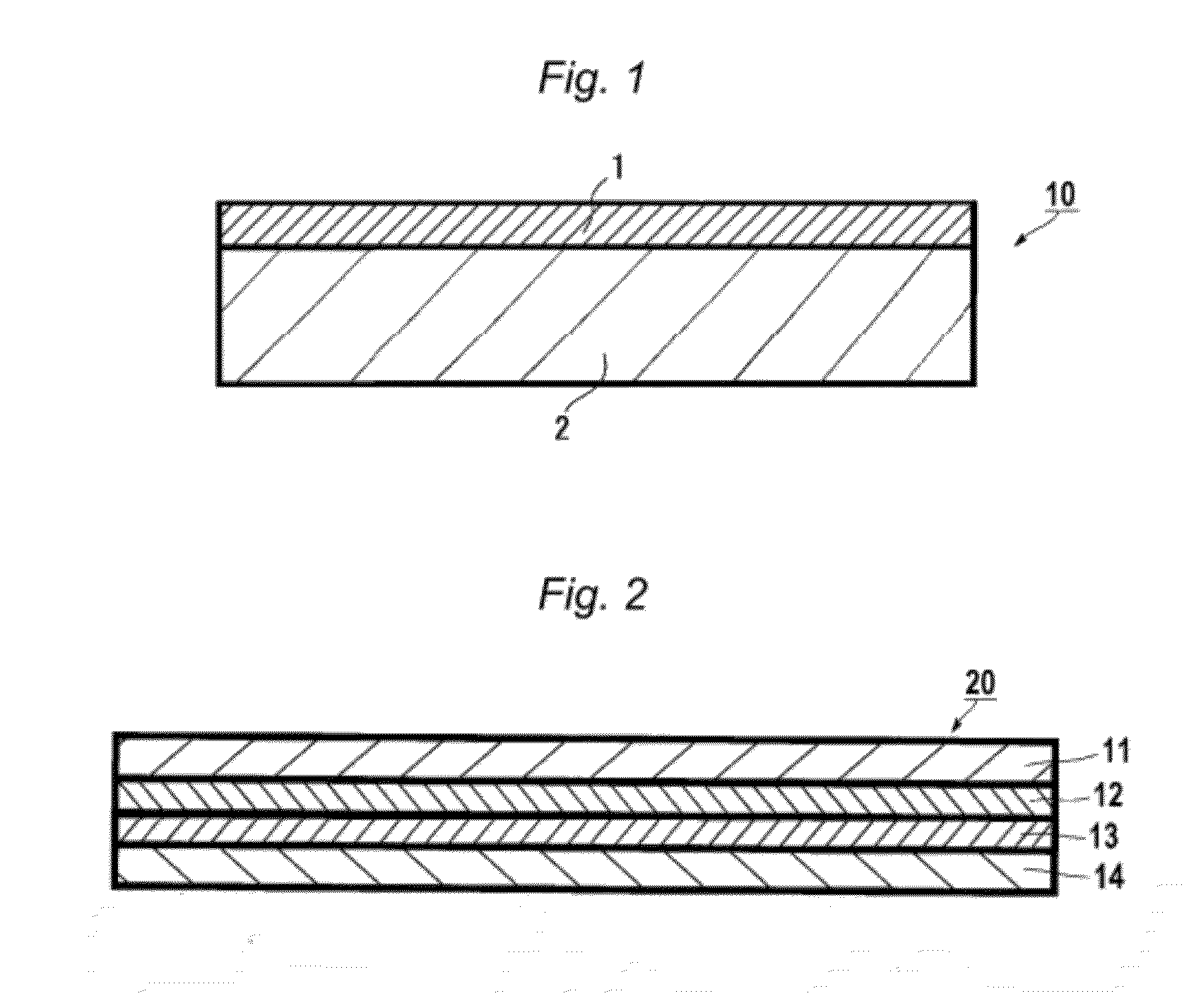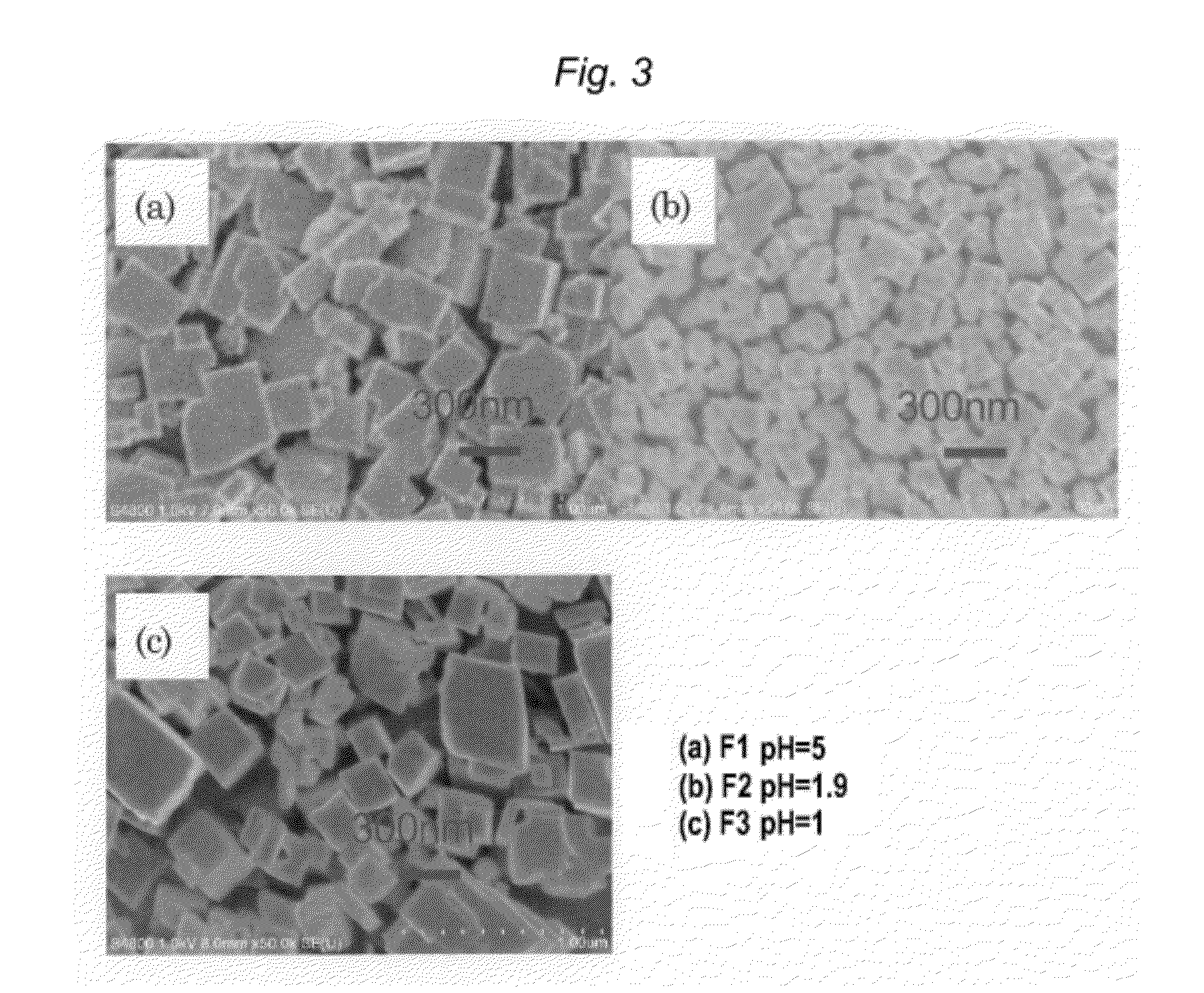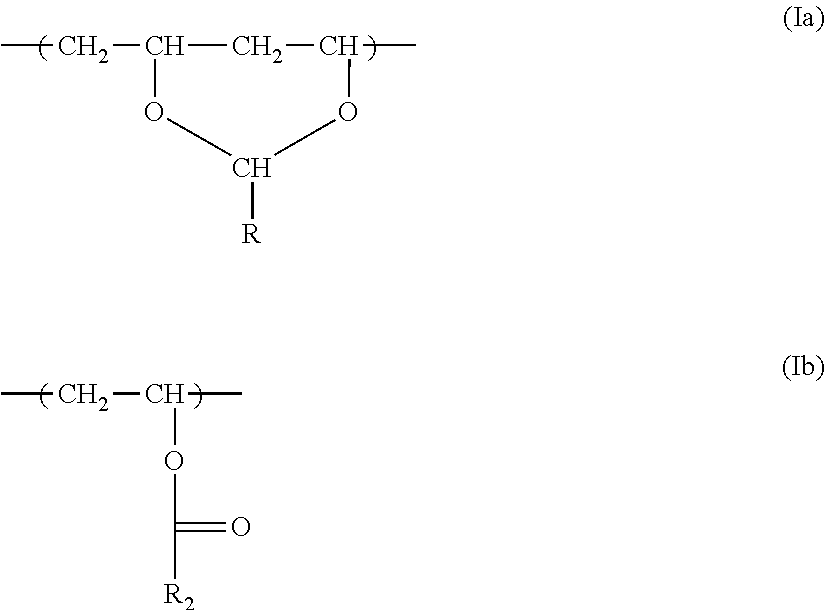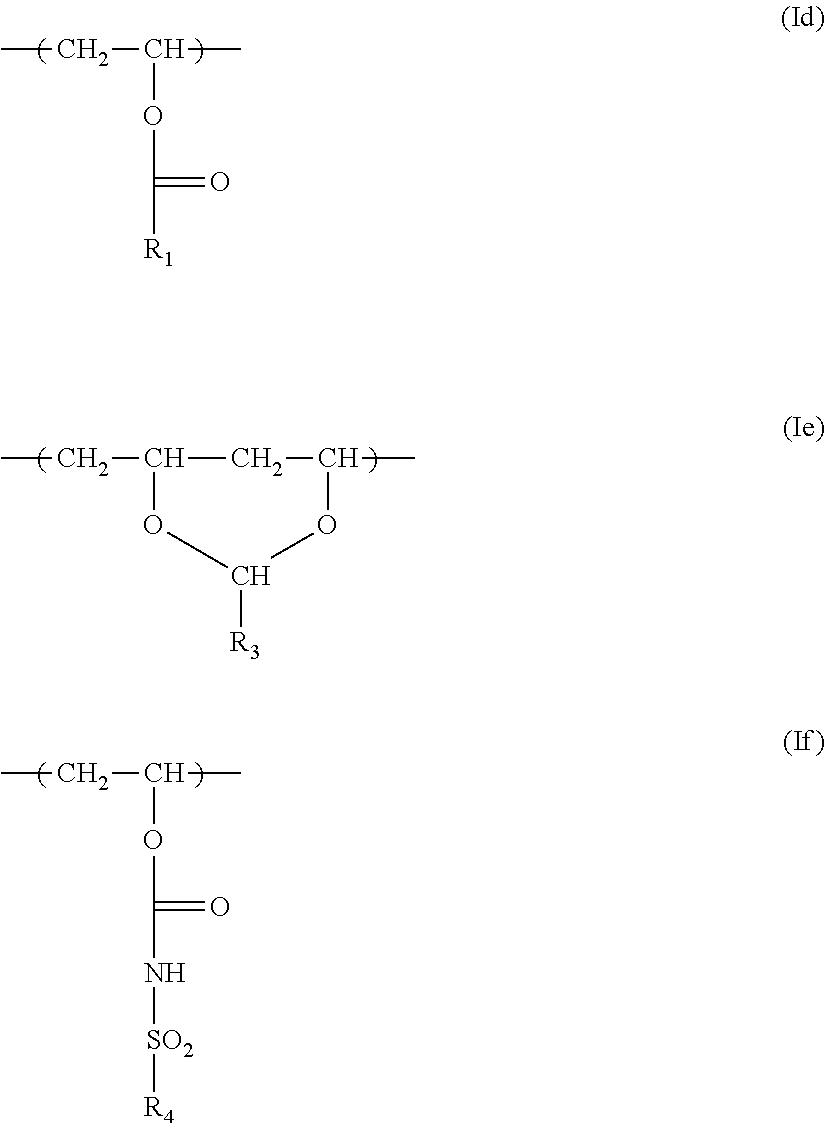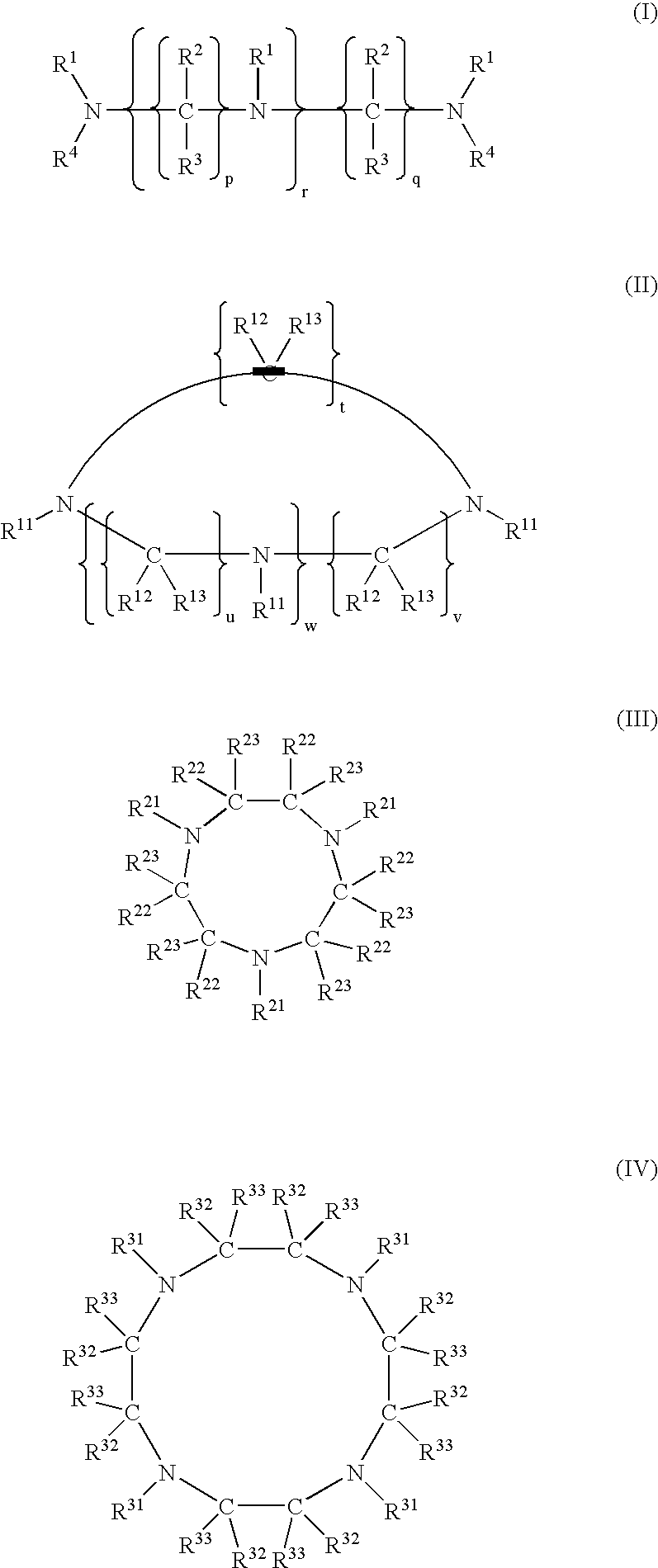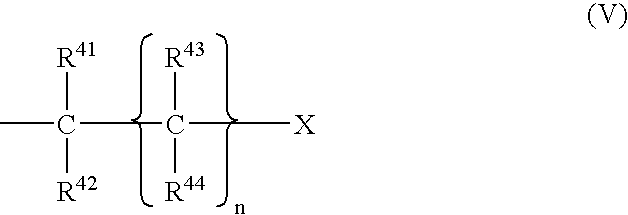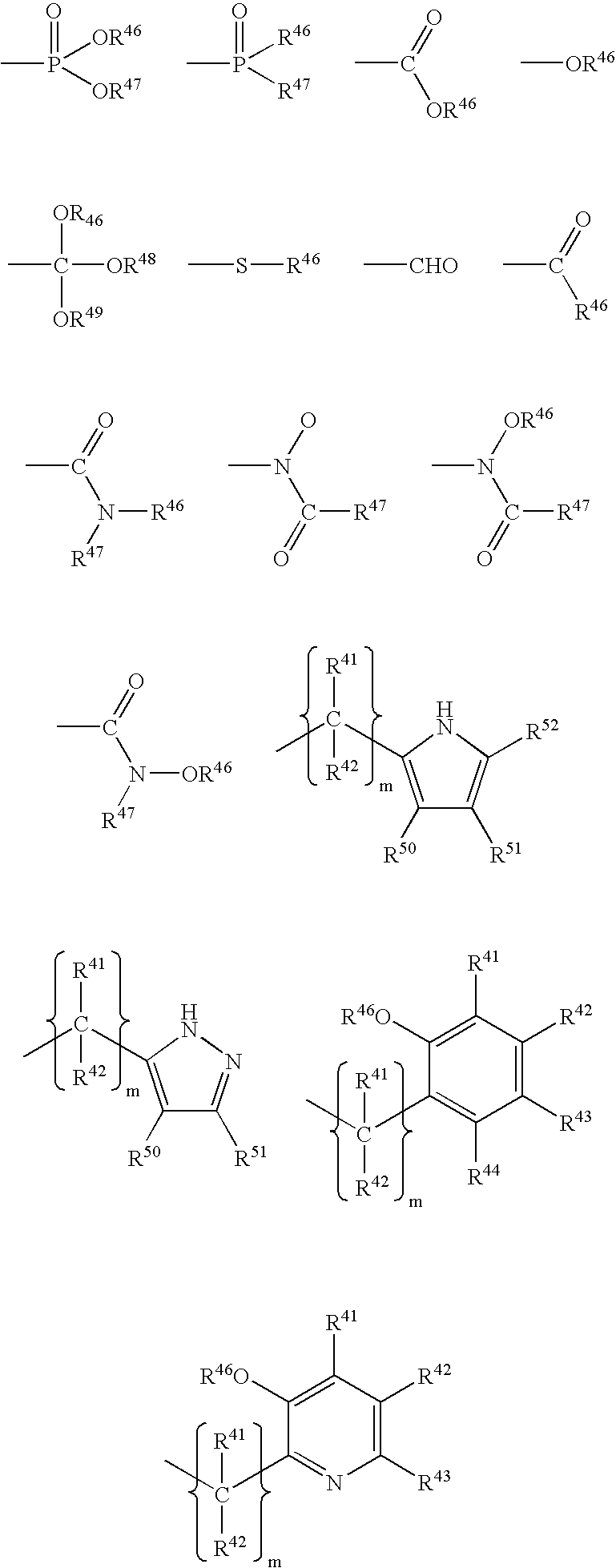Patents
Literature
55 results about "Zinc cation" patented technology
Efficacy Topic
Property
Owner
Technical Advancement
Application Domain
Technology Topic
Technology Field Word
Patent Country/Region
Patent Type
Patent Status
Application Year
Inventor
ZINC cation is an enzyme that catalyzes the HYDROLYSIS of terminal, non-reducing alpha-D-mannose residues in alpha-D-mannosides.
Systems and methods for hydrogen generation from solid hydrides
InactiveUS20050238573A1Regulate rateReactant parameters controlHydrogen productionO-Phosphoric AcidAlkaline earth metal
A system is disclosed for hydrogen generation based on hydrolysis of solid chemical hydrides with the capability of controlled startup and stop characteristics wherein regulation of acid concentration, acid feed rate, or a combination of both control the rate of hydrogen generation. The system comprises a first chamber for storing a solid chemical hydride and a second chamber for storing an acidic reagent. The solid chemical hydride is a solid metal borohydride having the general formula MBH4, where M is selected from the group consisting of alkali metal cations, alkaline earth metal cations, aluminum cation, zinc cation, and ammonium cation. The acidic reagent may comprise inorganic acids such as the mineral acids hydrochloric acid, sulfuric acid, and phosphoric acid, and organic acids such as acetic acid, formic acid, maleic acid, citric acid, and tartaric acid, or mixtures thereof.
Owner:MILLENNIUM CELL
Baby Care Skin Protectant Compositions for Diaper Rash
The present invention provides a comprehensive solution to skin problems of infants and incontinent adults related to diaper rash, also known as diaper dermatitis. This is based on certain novel divalent metal and quaternary ammonium complexes (ion-pairs) of zeolites (that are made by an in-situ process), which in synergistic combination with certain other compositions, provide a comprehensive treatment for diaper rash that encompasses the following aspects: (1) deactivation of lipase and protease enzymes on skin surface, (2) the controlled-release delivery of skin protectant compositions, such as divalent metal zinc cation, (3) trapping of acidic and alkaline chemicals deposited on skin from body exudates and enzyme activity, (4) controlled-release delivery of anti-inflammatory agents, and COX and LOX enzyme inhibitors, (5) controlled-release delivery of antibacterial and antifungal compositions, and (6) absorption of excess moisture in the diaper zone.
Owner:BIODERM RES
Laminates comprising ionomer interlayers with low haze and high moisture resistance
A laminate comprises an ionomeric interlayer sheet which, in turn, comprises or is prepared from a sodium / zinc mixed ionomer that comprises carboxylate groups and a combination of counterions that consists essentially of sodium cations and zinc cations. The sodium / zinc mixed ionomer is the neutralization product of a precursor acid copolymer. The precursor acid copolymer comprises copolymerized units of an α-olefin and an α,β-ethylenically unsaturated carboxylic acid, and it has a melt flow rate of about 70 to about 1000 g / 10 min. In addition, the precursor acid copolymer, when neutralized to a level of about 40% to about 90%, and when comprising counterions that consist essentially of sodium ions, produces a sodium ionomer that has a freeze enthalpy that is not detectable or that is less than about 3.0 j / g, when determined by differential scanning calorimetry.
Owner:DOW GLOBAL TECH LLC
Ionomer compositions with low haze and high moisture resistance and articles comprising the same
A sodium / zinc mixed ionomer comprises carboxylate groups and a combination of counterions that consists essentially of sodium cations and zinc cations. The sodium / zinc mixed ionomer is the neutralization product of a precursor acid copolymer. The precursor acid copolymer comprises copolymerized units of an α-olefin and an α,β-ethylenically unsaturated carboxylic acid, and it has a melt flow rate of about 10 to about 4000 g / 10 min. In addition, the precursor acid copolymer, when neutralized to a level of about 40% to about 90%, and when comprising counterions that consist essentially of sodium ions, produces a sodium ionomer that has a freeze enthalpy that is not detectable or that is less than about 3.0 j / g, when determined by differential scanning calorimetry. Further provided are articles comprising or prepared from the sodium / zinc mixed ionomer.
Owner:DOW GLOBAL TECH LLC
Colonic delivery using Zn/pectin beads with a Eudragit coating
InactiveUS20080124279A1Quality improvementGood effectPowder deliveryDigestive systemActive agentInfective disorder
Drug delivery systems that can deliver therapeutic and / or diagnostic agents to the colon are disclosed. The systems include pectin beads crosslinked with zinc or any divalent cation of interest, which beads are then coated with Eudragit®-type polymers. The drug delivery systems are orally administrable, but can deliver the active agents to the colon. In some embodiments, they can administer the agents to various positions in the gastro-intestinal tract, including the colon. The agent can be a small molecule, peptide, protein, nucleic acid, or complex structures of natural, recombinant or synthetic origin. In still other embodiments, the agent is a diagnostic agent. The agents can be used to diagnose, treat or investigate humans and animals for a variety of conditions, including infectious diseases, inflammatory diseases, cancers and the like. Colon-specific delivery is obtained by formulating a prophylactic, therapeutic, and / or diagnostic agent with specific polymers that degrade in the colon, such as pectin. The pectin is gelled / crosslinked with a cation such as a zinc cation. The formulation, typically in the form of ionically crosslinked pectin beads, is subsequently coated with a specific polymer such as a Eudragit® polymer. Processes for obtaining such beads are also disclosed.
Owner:DA VOLTERRA FACULTE DE MEDECINE BICHAT
Laminates comprising ionomer interlayers with low haze and high moisture resistance
ActiveUS20100167061A1Synthetic resin layered productsGlass/slag layered productsIonomerPolymer science
A laminate comprises an ionomeric interlayer sheet which, in turn, comprises or is prepared from a sodium / zinc mixed ionomer that comprises carboxylate groups and a combination of counterions that consists essentially of sodium cations and zinc cations. The sodium / zinc mixed ionomer is the neutralization product of a precursor acid copolymer. The precursor acid copolymer comprises copolymerized units of an α-olefin and an α,β-ethylenically unsaturated carboxylic acid, and it has a melt flow rate of about 70 to about 1000 g / 10 min. In addition, the precursor acid copolymer, when neutralized to a level of about 40% to about 90%, and when comprising counterions that consist essentially of sodium ions, produces a sodium ionomer that has a freeze enthalpy that is not detectable or that is less than about 3.0 j / g, when determined by differential scanning calorimetry.
Owner:DOW GLOBAL TECH LLC
Methods of processing using silicate-free developer compositions
InactiveUS20120125216A1Complicate to cleanInhibition of dissolutionPhotosensitive materialsSemiconductor/solid-state device manufacturingPlanographic printingEster bond
A method is used to prepare lithographic printing plates by developing positive-working lithographic printing plate precursor that has a single imageable layer that comprises a polymer binder having recurring units represented by Structure (Ib) below:wherein the recurring units of Structure (Ib) are present in an amount of at least 25 and up to and including 60 mol %, all based on total recurring units in the polymer binder, and R2 is a substituted or unsubstituted hydroxyaryl group in which the hydroxyl group is ortho to the ester linkage, to form exposed and non-exposed regions in the imageable layer. The resulting imaged lithographic printing plate is developed using a silicate-free developer composition having a pH of at least 12 and comprising at least 0.001 gram-atom / kg of a metal cation M2+ selected from the group consisting of barium, calcium, strontium, and zinc cations.
Owner:EASTMAN KODAK CO
Polyamide Composition Containing Ionomer
InactiveUS20130171394A1Poor salt stress crack resistanceExcellent salt stress crack resistanceLayered productsPretreated surfacesIonomerCrack resistance
Disclosed is a composition comprising polyamide comprising nylon-6 and optionally nylon-6,66, nylon-66, nylon-610, nylon-612, nylon-11, nylon-12 and an ionomer comprising an ethylene carboxylic acid copolymer, wherein 30 to 90% of the total carboxylic acid functionalities are neutralized to salts with a mixture of zinc cations and cations of a second metal selected from Group 1 of the Periodic Table of the Elements wherein the salts comprise from 20 to 90% equivalents of zinc. Articles prepared from the composition have improved salt stress crack resistance when exposed to zinc chloride solutions.
Owner:EI DU PONT DE NEMOURS & CO
Class of near infrared optical probes for biological applications
InactiveUS20140080168A1Microbiological testing/measurementMaterial analysis by optical meansBenzoxazoleBenzene
2,5-Bis(benzoxazol-2′-yl)benzene-1,4-diol derivatives (Zinhbo derivatives) are used to detect zinc ions and have particular application in vivo and in vitro. Zinhbo derivatives upon excitation give a florescence response emission that can be used to determine the presence of zinc cation in solution. Zinhbo derivatives complexed with zinc cations upon excitation can produce a florescence response emission in the visible and near infrared range. Zinhbo derivatives complexed with zinc cations exhibit a large stoke shift between the excitation and emission wavelengths.
Owner:THE UNIVERSITY OF AKRON
A kind of preparation method of modified montmorillonite adsorbent and application of removing micro and trace amount of iodine
InactiveCN102284274AHigh mechanical strengthUniform particlesOther chemical processesWater/sewage treatment by sorptionAcetic anhydridePropanoic acid
The invention relates to a preparation method for a modified montmorillonite adsorbent and application thereof to removing micro or trace iodine. The preparation method is characterized in that: a soluble silver salt is used as a main modification source, copper and zinc cations are used as assistants, and hexadecyl trimethyl ammonium bromide is combined, so that the requirements of processing hydrophilic and hydrophobic iodine are met. The iodine removing adsorbent is a substance with high mechanical strength and uniform grains and has a high removal rate which reaches 99 percent for the micro or trace iodine in a water system and has the characteristics of high adsorption speed and high adsorption capacity. The method is suitable for removing the micro or trace iodine existing in the water system, trace iodide in an acetic acid, propionic acid and / or acetic anhydride product and iodide impurity C1-C6 alkyl iodine such as methyl iodine existing in organic liquid.
Owner:TIANJIN UNIV
Method for preparing a masterbatch of diene elastomer and silica
ActiveUS9284420B2Improve the level ofGood dispersionSpecial tyresTyre tread bands/patternsElastomerMasterbatch
Preparation of a masterbatch of diene elastomer and silica including preparing at least one silica dispersion in water; bringing into contact and mixing an elastomer latex and the aqueous silica dispersion in the presence of a metal salt in order to obtain a coagulum; and recovering the coagulum and drying the recovered coagulum in order to obtain the masterbatch. The molar content of zinc cations, defined as the number of moles of zinc cations of the zinc salt per BET unit area of the silica, is between 1.19*10−6 and 5.62*10−6 mol / m2.
Owner:MICHELIN & CO CIE GEN DES ESTAB MICHELIN
Polyamide composition containing ionomer
Disclosed is a composition comprising polyamide comprising nylon-6 / 12 or a polyamide comprising a first repeat unit of formula (I)and a second repeat unit of formula (II)—C(O)(CH2)nC(O)NH(CH2)6NH— (II);wherein n is an integer selected from 8, 10, 12, or 14, and optionally nylon-6,66, nylon-66, nylon-610, nylon-612, nylon-11, nylon-12 and an ionomer comprising an ethylene carboxylic acid copolymer, wherein 30 to 90% of the total carboxylic acid functionalities are neutralized to salts with zinc cations or a mixture of zinc cations and cations of a second metal selected from Group 1 of the Periodic Table of the Elements wherein the salts comprise from 20 to 90% equivalents of zinc. Articles prepared from the composition have improved salt stress crack resistance when exposed to zinc chloride solutions.
Owner:EI DU PONT DE NEMOURS & CO
Denture Adhesive Compositions
Denture adhesive compositions having good hold and improved taste containing a salt of a copolymer of alkyl vinyl ether-maleic acid or anhydride. Compositions containing from about 25% to about 45%, by weight of the composition, of a salt of a copolymer of alkyl vinyl ether-maleic acid or anhydride containing a cationic salt function containing: i) from about 60% to about 72% cations selected from calcium, strontium, magnesium, or combinations thereof; ii) from 0% to about 10% sodium cations; iii) less than 1% zinc cations; and iv) from about 25% to about 40% of a free acid component; and further containing from about 15% to about 25%, by weight of the composition of a carboxymethyl cellulose having a molecular weight of from about 200,000 to about 1,000,000 daltons; and a carrier. Methods of improving the adhesion of dentures to the oral cavity by applying such compositions to dentures, the oral cavity, or both, and thereafter securing the denture to the ridge or palate of the oral cavity.
Owner:THE PROCTER & GAMBLE COMPANY
Method for preparing a masterbatch of diene elastomer and silica
ActiveUS20140249247A1Increase shearGood dispersionSpecial tyresTyre tread bands/patternsElastomerMasterbatch
Preparation of a masterbatch of diene elastomer and silica including preparing at least one silica dispersion in water; bringing into contact and mixing an elastomer latex and the aqueous silica dispersion in the presence of a metal salt in order to obtain a coagulum; and recovering the coagulum and drying the recovered coagulum in order to obtain the masterbatch. The molar content of zinc cations, defined as the number of moles of zinc cations of the zinc salt per BET unit area of the silica, is between 1.19*10−6 and 5.62*10−6 mol / m2.
Owner:MICHELIN & CO CIE GEN DES ESTAB MICHELIN
Silicate-free developer compositions
ActiveUS8530143B2Extended processing cycleSimple compositionPhotosensitive materialsSemiconductor/solid-state device manufacturingAluminum IonAlkaline water
A silicate-free alkaline aqueous developer composition has a pH of at least 12 and comprises a metal cation M2+ selected from barium, calcium, strontium, and zinc cations, and a chelating agent that has a complex formation constant (log K) for the metal cation of at least 3.5 and less than or equal to 4.5, and a log K for aluminum ion that is 7 or less. This developer composition can be used to process positive-working lithographic printing plate precursors to provide lithographic printing plates.
Owner:EASTMAN KODAK CO
Colonic delivery of metallo-dependent enzymes
Drug delivery systems for delivering agents capable of reducing the quantity of residual antibiotics reaching the colon following oral or parenteral antibiotic therapy, and for delivering metallo-dependent enzymes, and methods of using the drug delivery systems, are disclosed. The drug delivery systems include pectin beads that encapsulate the active agent (which can be a metallo-dependent enzyme), where the pectin is crosslinked with zinc or any divalent cation of interest and the pectin beads are coated with Eudragit®-type polymers. The drug delivery systems are orally administrable, but can deliver the active agents to the colon. In some embodiments, they can administer the agents to various positions in the gastro-intestinal tract, including the colon. One metallo-dependent enzyme is the β-lactamase L1 from Stenotrophomonas maltophilia, and agents that inactivate macrolide, quinolone, fluoroquinolone or glycopeptide antibiotics can also be used. The delivery of the active agent can be modulated to occur at various pre-selected sites of delivery within the intestinal tract by gelling / crosslinking a mixture of the active agent, such as a metallo-dependent enzyme, and pectin, with divalent metallic cations such as Ca+2 or Zn+2. A stable metallo-dependent enzyme formulation can be delivered to the lower intestine or colon. The use of zinc cations to crosslink the pectin is particularly preferred when specific metallo-dependent enzymes, which are Zn2+ dependent, could interact with other cationic species if they were used to gel the pectin beads and thus adversely affect the activity of such metallo-dependent enzymes.
Owner:ASSISTANCE PUBLIQUE HOPITAUX DE PARIS +2
Ionomer compositions with low haze and high moisture resistance and articles comprising the same
A sodium / zinc mixed ionomer comprises carboxylate groups and a combination of counterions that consists essentially of sodium cations and zinc cations. The sodium / zinc mixed ionomer is the neutralization product of a precursor acid copolymer. The precursor acid copolymer comprises copolymerized units of an α-olefin and an α,β-ethylenically unsaturated carboxylic acid, and it has a melt flow rate of about 10 to about 4000 g / 10 min. In addition, the precursor acid copolymer, when neutralized to a level of about 40% to about 90%, and when comprising counterions that consist essentially of sodium ions, produces a sodium ionomer that has a freeze enthalpy that is not detectable or that is less than about 3.0 j / g, when determined by differential scanning calorimetry. Further provided are articles comprising or prepared from the sodium / zinc mixed ionomer.
Owner:DOW GLOBAL TECH LLC
Methods for treatment of wounds using time release compositions
InactiveUS20060105017A1Good curative effectContinuous deliveryImpression capsDigestive systemBioabsorbable membraneRubidium
A method for treatment of wounds associated with the insertion of a medical implant, wherein an inorganic therapeutic agent containing potassium, rubidium, calcium and zinc cations is applied to the wound site on a silicone or bioabsorbable membrane. The therapeutic composition is provided in a long lasting, timed delivery formulation to improve the efficacy of the therapeutic agent. The membrane may contain a micro-texture to further control delivery of the therapeutic agent to the wound site.
Owner:GREYSTONE MEDICAL GROUP +1
Systems and methods for hydrogen generation from solid hydrides
A system is disclosed for hydrogen generation based on the hydrolysis of solid chemical hydrides with the capability of controlled startup and stop characteristics wherein regulation of acid concentration, acid feed rate, or a combination of both control the rate of hydrogen generation. The system comprises a first chamber for storing a solid chemical hydride and a second chamber for storing an acidic reagent. The solid chemical hydride is a solid metal borohydride having the general formula MBH4, where M is selected from the group consisting of alkali metal cations, alkaline earth metal cations, aluminum cation, zinc cation, and ammonium cation. The acidic reagent may comprise inorganic acids such as the mineral acids hydrochloric acid, sulfuric acid, and phosphoric acid, and organic acids such as acetic acid, formic acid, maleic acid, citric acid, and tartaric acid, or mixtures thereof.
Owner:MILLENNIUM CELL
Silicate-free developer compositions
InactiveUS20120129093A1Effective dissolutionComplicate to cleanPhotosensitive materialsSemiconductor/solid-state device manufacturingAlkaline waterPhysical chemistry
A silicate-free alkaline aqueous developer composition has a pH of at least 12 and comprises a hydroxide alkali agent, a metal cation M2+ selected from barium, calcium, strontium, and zinc cations, a chelating agent for the metal cation, and an alkali metal salt that is different than the other components. These developer compositions can be used to process imaged positive-working lithographic printing plate precursors to prepare lithographic printing plates.
Owner:EASTMAN KODAK CO
Denture adhesive compositions
The present invention relates to a denture adhesive composition comprising mixed salts of an alkyl vinyl ether-maleic acid or anhydride copolymer and / or terpolymer with isobutylene wherein the mixed salt contains a cationic salt function comprising at least about 1% strontium cations, from about 1% to about 40% of zinc cations, from 0% to about 2.5% of a cation selected from the group consisting of iron, boron, aluminum, vanadium, chromium, manganese, nickel, copper, yttrium, titanium, and mixtures thereof; from about 36% to about 60% free acid component; and from 0% to about 65% of a cation selected from the group consisting of magnesium, calcium, and mixtures thereof. In addition, the present invention relates to denture adhesive compositions comprising the above composition and at least one non-adhesive self-supporting layer. The present invention further relates to a method of increasing the adhesion of dentures to the oral cavity by applying the above compositions to dentures, directly to the oral cavity, palate or ridge of the oral cavity, or applying it to both, and thereafter securing the dentures to the ridge or palate of the oral cavity.
Owner:THE PROCTER & GAMBLE COMPANY
Nonsludging zinc phosphating composition and process
InactiveUS7422629B1Electrolytic inorganic material coatingOther chemical processesPhosphoric Acid EstersElectrolysis
Electrolysis using a suitable electrolyte provides a completely nonsludging zinc phosphate conversion coating process that produces a high quality conversion coating in a very short time. The suitable electrolyte contains at least water, dissolved nitric acid, and dissolved zinc cations and optionally also contains m chemically distinct species of cations other than zinc and n chemically distinct species of anions other than anions derivable by ionization of phosphoric and nitric acids, each of m and n independently being zero or a positive integer. Preferably, the liquid composition contains as additive at least one selection from nitrous acid, permanganic acid, peroxysulfuric acid, hydrogen peroxide, chloric acid, perchloric acid, nitrobenzenesulfonic acid, hydroxylamine, starch / phosphoric acid esters, fluorine compounds, and salts of the preceding; and / or the metal substrate is subjected to cathodic electrolysis after the workpiece has been brought into contact with a weakly basic aqueous colloidal solution that contains titanium oxide, titanium hydroxide, and zinc phosphate.
Owner:HENKEL KGAA
Colonic delivery of metallo-dependent enzymes
Drug delivery systems for reducing the quantity of residual antibiotics reaching the colon following oral or parenteral antibiotic therapy, and for delivering metallo-dependent enzymes, and methods of use thereof, are disclosed. The drug delivery systems include pectin beads that encapsulate the active agent (which can be a metallo-dependent enzyme). The pectin is crosslinked with zinc or other divalent cations, and the pectin beads are coated with Eudragit®-type polymers. The delivery of the active agent can be modulated to occur at various pre-selected sites of delivery within the intestinal tract. A stable metallo-dependent enzyme formulation can be delivered to the lower intestine or colon. The use of zinc cations to crosslink the pectin is particularly preferred when the metallo-dependent enzymes are zinc dependent, where other cationic used to gel the pectin beads might adversely affect the activity of such metallo-dependent enzymes.
Owner:ASSISTANCE PUBLIQUE HOPITAUX DE PARIS +2
Metal complex nanoparticles and method for producing the same
InactiveUS20120077037A1Improve productivityPreferable performanceMaterial nanotechnologyGlass/slag layered productsNanoparticleAqueous solution
A method for producing metal complex nanoparticles, the method having: providing an aqueous solution containing a metal cyano complex anion having a metal atom MA as a central metal, with an aqueous solution containing zinc cation, the pH of the aqueous solution containing zinc cation being adjusted; and mixing the solutions and thereby producing metal complex nanoparticles composed of the metal atom MA and zinc under controlling the properties of the obtained metal complex nanoparticles.
Owner:NAT INST OF ADVANCED IND SCI & TECH
Denture adhesive compositions
The present invention relates to a denture adhesive composition comprising mixed salts of an alkyl vinyl ehter-maleic acid or anhydride copolymer and / or terpolymer with isobutylene wherein the mixed salt contains a cationic salt function comprising at least about 1 % strontium cations, from about 1 % to about 40 % of zinc cations, from 0 % to about 2.5 % of a cation selected from the group consisting of iron, boron, aluminum, vanadium, chromium, manganese, nickel copper, yttrium, titanium, and mixtures thereof; from about 36 % to about 60 % free acid component; and from 0 % to about 65 % of a cation selected from the group consisting of magnesium, calcium, and mixtures thereof. In addition, the present invention relates to denture adhesive compositions comprising the above composition and at least one non-adhesive self-supporting layer. The present invention further relates to a method of increasing the adhesion of dentures to the oral cavity by applying the above compositions to dentures, directly to the oral cavity, palate or ridge of the oral cavity, or applying it to both, and thereafter securing the dentures to the ridge or palate of the oral cavity.
Owner:THE PROCTER & GAMBLE COMPANY
Ionomer Compositions with Good Scuff Resistance
InactiveUS20110306442A1High hardnessIncreasing flex modulusLayered productsGolf ballsIonomerFlexural modulus
Provided is a composition comprising a mixture of a high molecular weight (Mw between 80,000 and 500,000 Da) carboxylate functionalized ethylene terpolymer, a high molecular weight (Mw between 80,000 and 500,000 Da) carboxylate functionalized ethylene dipolymer and a low molecular weight (Mw between 2,000 and 30,000 Da) carboxylate functionalized ethylene copolymer wherein the carboxylic acid groups are at least partially neutralized to form salts containing zinc cations. The composition provides a good balance of hardness, flexural modulus and scuff resistance. The composition is used in films, multilayer structures and other articles of manufacture, such as golf balls.
Owner:EI DU PONT DE NEMOURS & CO
Method for making lithographic printing plates
ActiveUS20150241777A1Improve the immunityReduce corrosionSemiconductor/solid-state device manufacturingPhotomechanical exposure apparatusWater insolubleStrontium
Lithographic printing plate are formed by imagewise exposing a positive-working lithographic printing plate precursor with infrared radiation to form an imaged precursor comprising exposed regions and non-exposed regions, and processing the imaged precursor to remove the exposed regions using a processing solution having a pH of 12 or more, that contains a metal cation M2+ selected from barium, calcium, strontium, and zinc cations, and is substantially silicate-free. The positive-working lithographic printing plate precursor comprises a grained and anodized aluminum-containing substrate, a first ink receptive layer comprising at least one water-insoluble, alkali solution-soluble or -dispersible first resin, a second ink receptive layer disposed over the first receptive layer, and an infrared radiation absorber in an amount of at least 0.5 weight %, in either or both of the first ink receptive layer and the second ink receptive layer.
Owner:EASTMAN KODAK CO
Neuroprotection and cardioprotection afforded by chelators with high affinity and specificity for cations of first transition series elements
InactiveUS6881732B2Robust cardioprotectionBiocidePeptide/protein ingredientsCytotoxicityProlonged seizures
Compounds that demonstrate chelation affinity and selectivity for first transition series elements are administered to patients suffering from such conditions as ischemia, prolonged seizures and trauma to provide neuroprotection, cardioprotection, or both. These compounds when administered form complexes with chelatable iron and copper cations and thereby mitigate the ability of these cations to catalyze Haber-Weiss reactions that form toxic hydroxy free radicals that cause tissue injury. These compounds also form complexes with chelatable zinc cations thereby inhibiting the cytotoxicity associated with excess chelatable zinc.
Owner:CHELATOR LLC CONCORD +1
Method for making lithographic printing plates
ActiveUS9229325B2Improve the immunityReduce corrosionPhotomechanical exposure apparatusMicrolithography exposure apparatusWater insolubleStrontium
Owner:EASTMAN KODAK CO
Acidic zincating solution
An aqueous, acidic zincating composition comprising: zinc cations; fluoride anions; and a carboxylic acid having at least one additional —OH substituent is provided that is useful in a process of making a corrosion resistant article comprising contacting an article having an aluminum surface with the zincating composition and thereafter coating the article with an autodeposition coating.
Owner:HENKEL KGAA
Features
- R&D
- Intellectual Property
- Life Sciences
- Materials
- Tech Scout
Why Patsnap Eureka
- Unparalleled Data Quality
- Higher Quality Content
- 60% Fewer Hallucinations
Social media
Patsnap Eureka Blog
Learn More Browse by: Latest US Patents, China's latest patents, Technical Efficacy Thesaurus, Application Domain, Technology Topic, Popular Technical Reports.
© 2025 PatSnap. All rights reserved.Legal|Privacy policy|Modern Slavery Act Transparency Statement|Sitemap|About US| Contact US: help@patsnap.com
